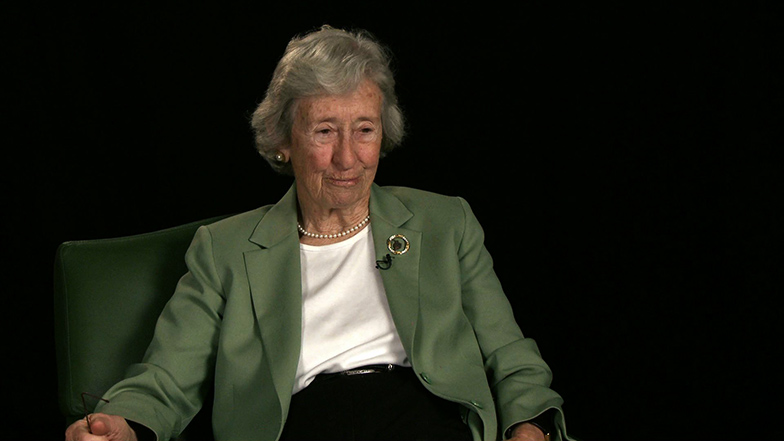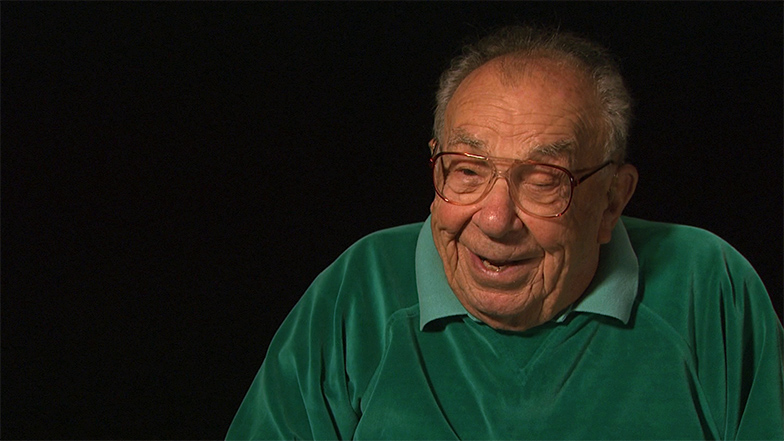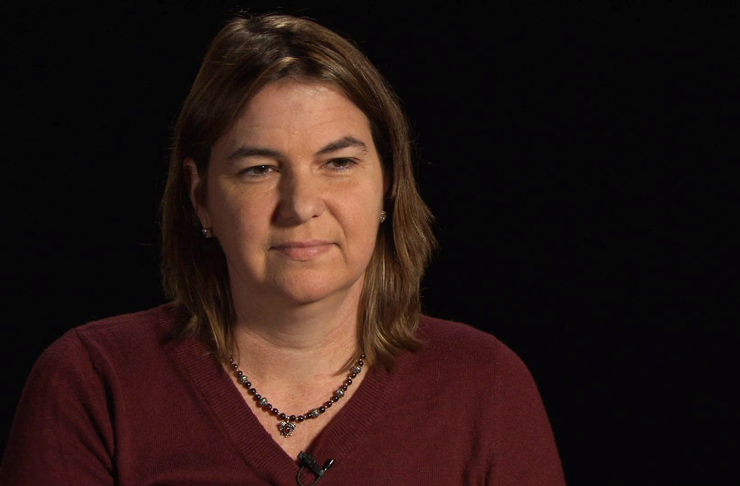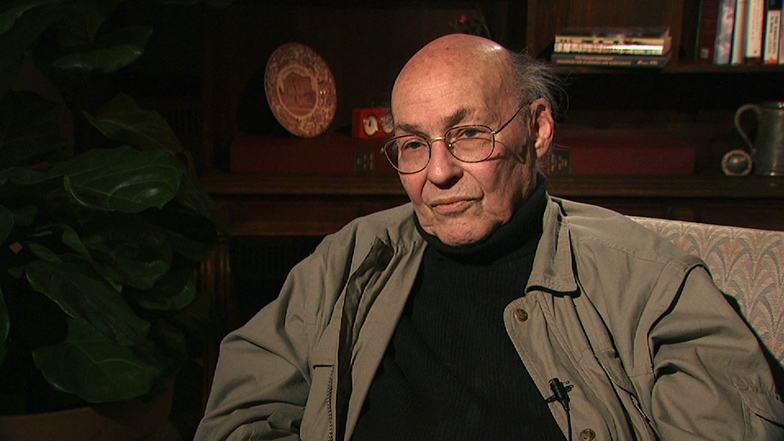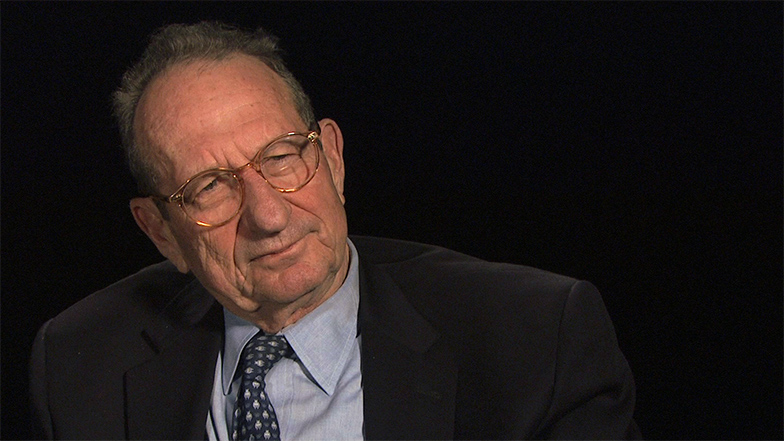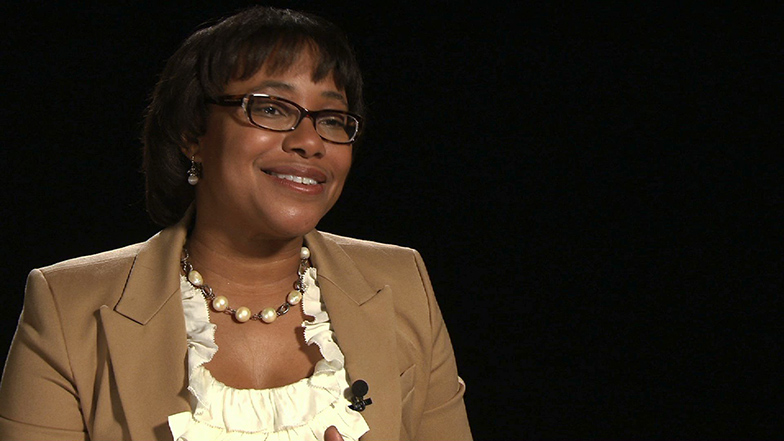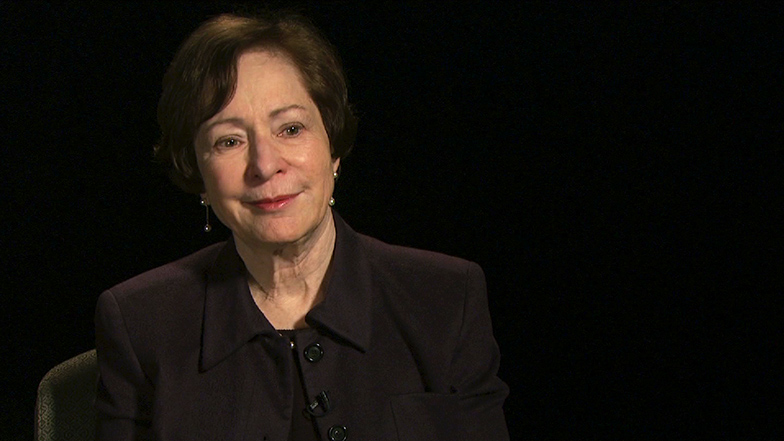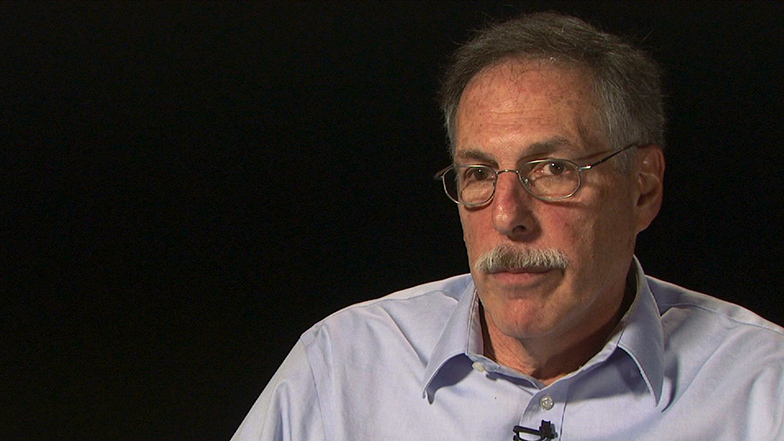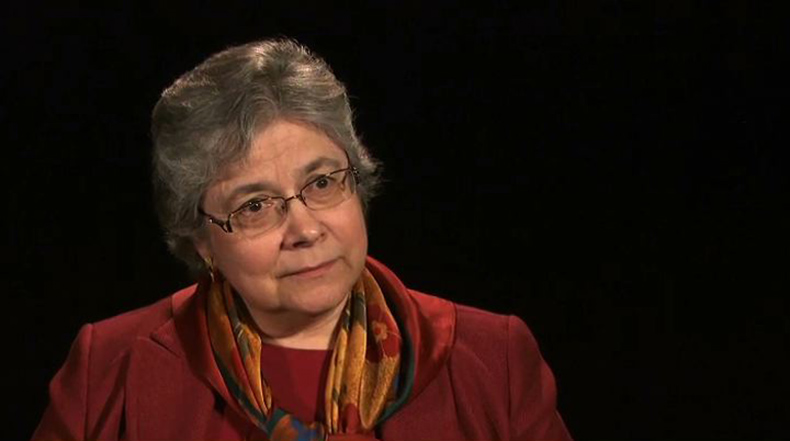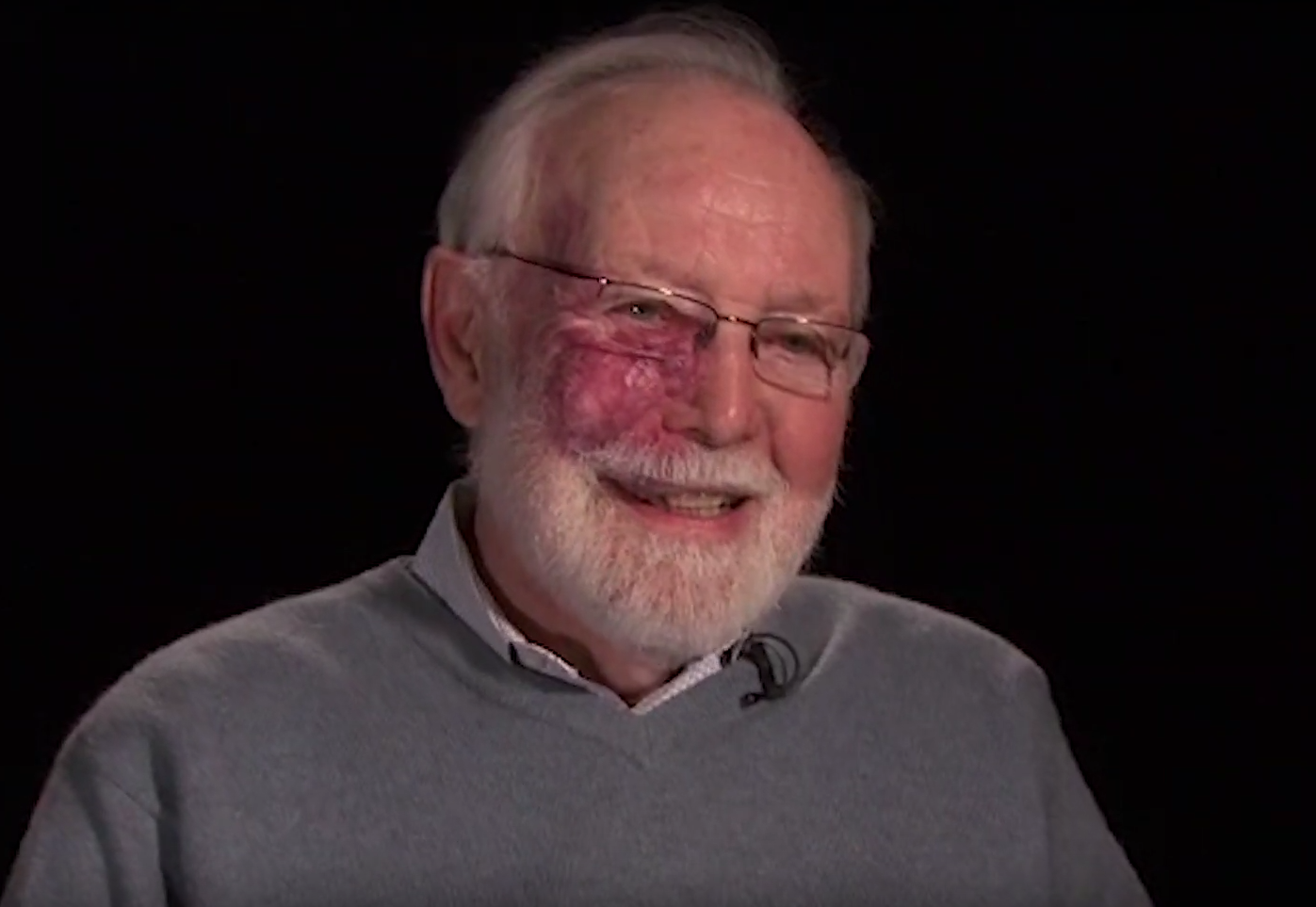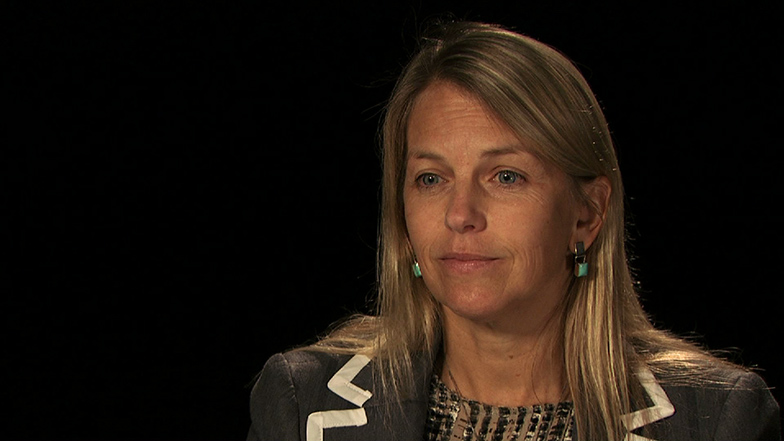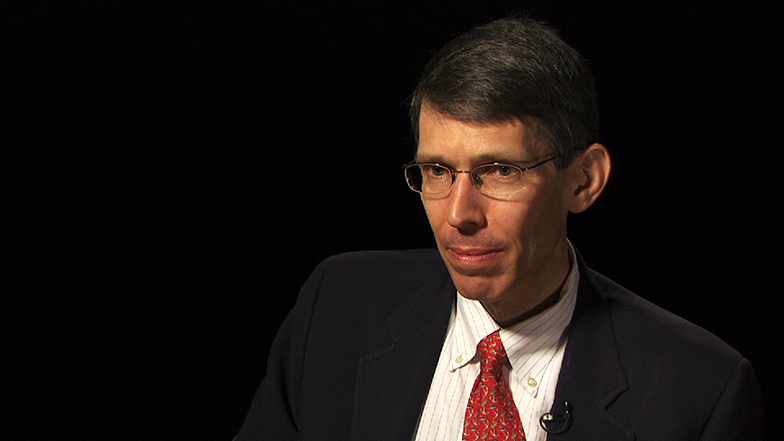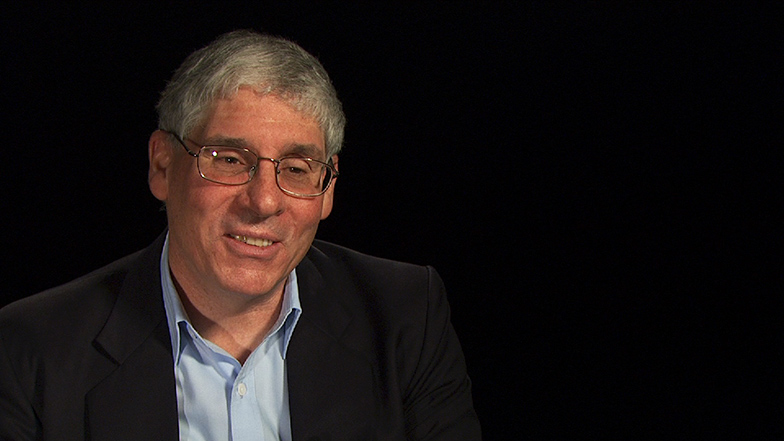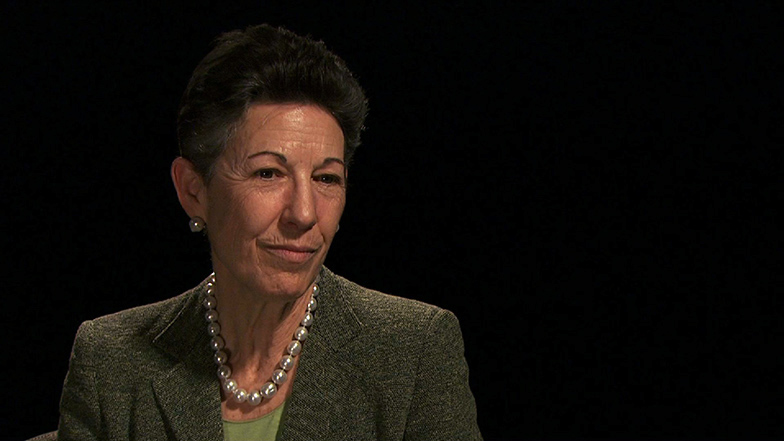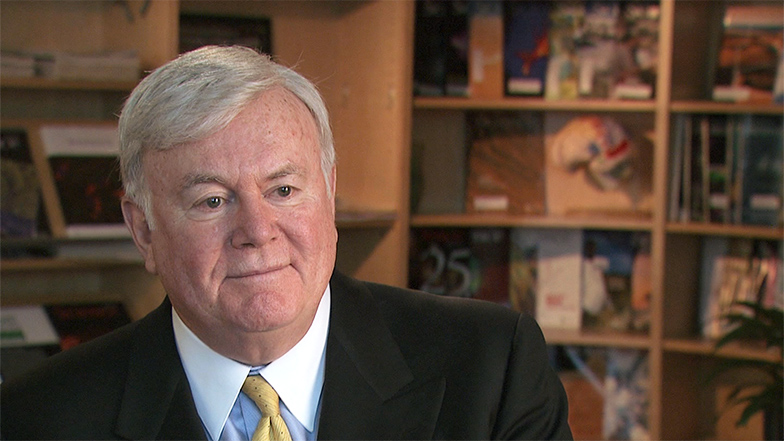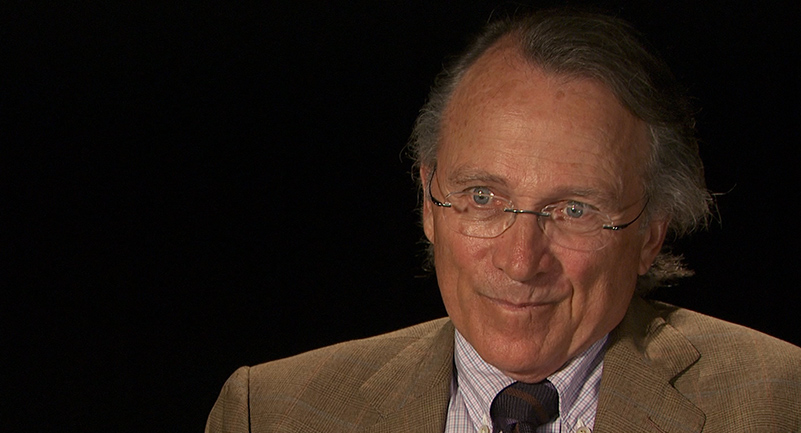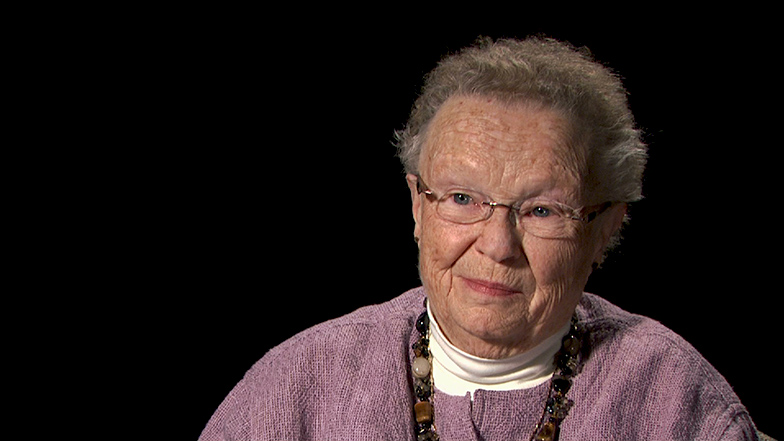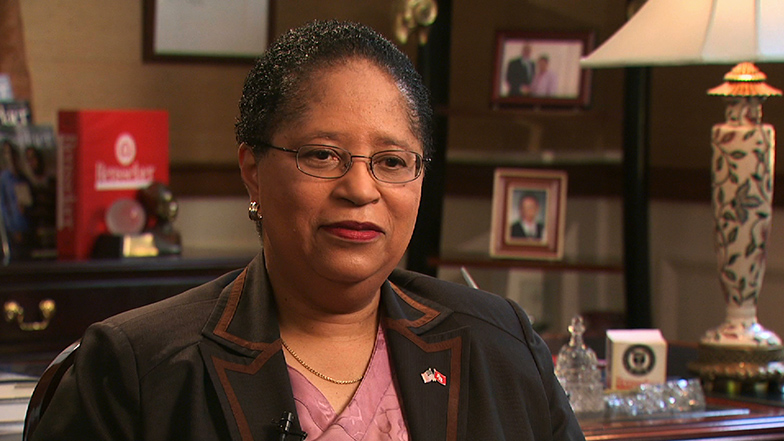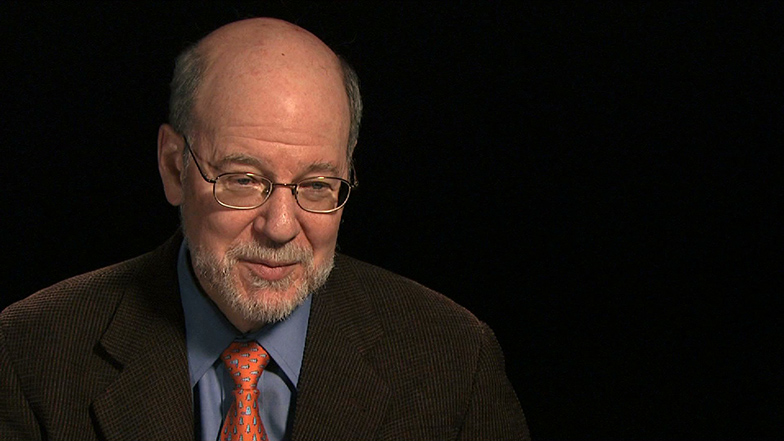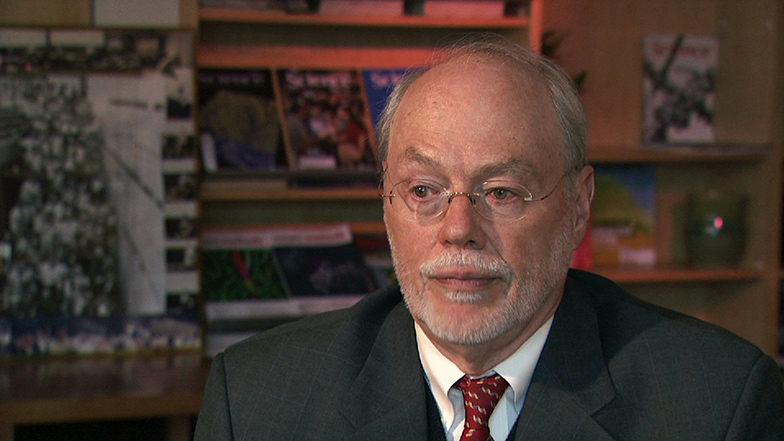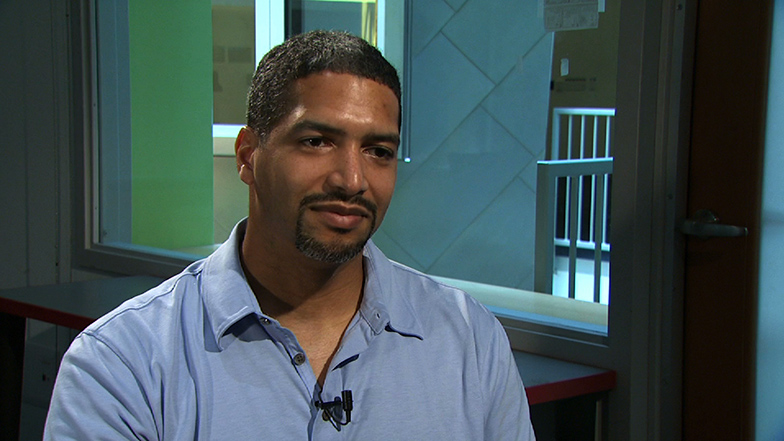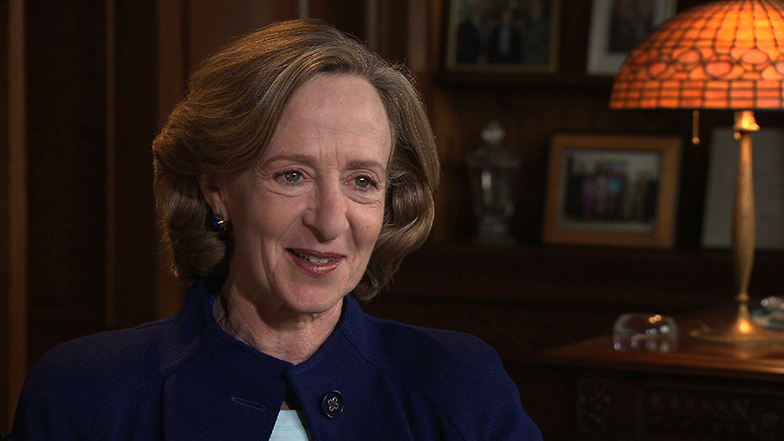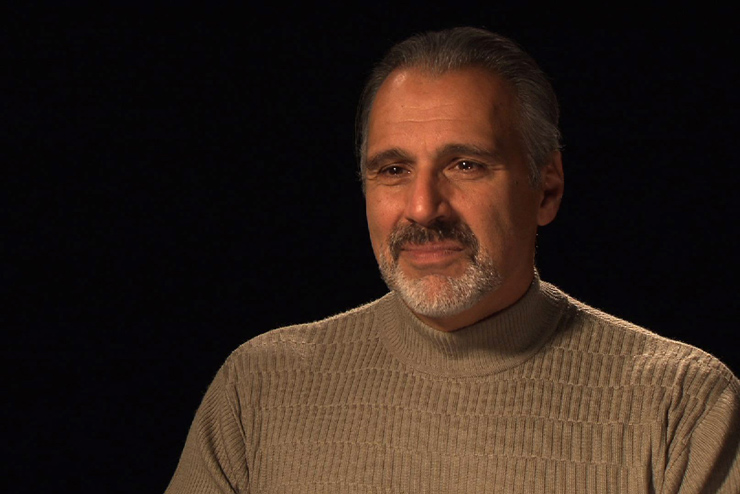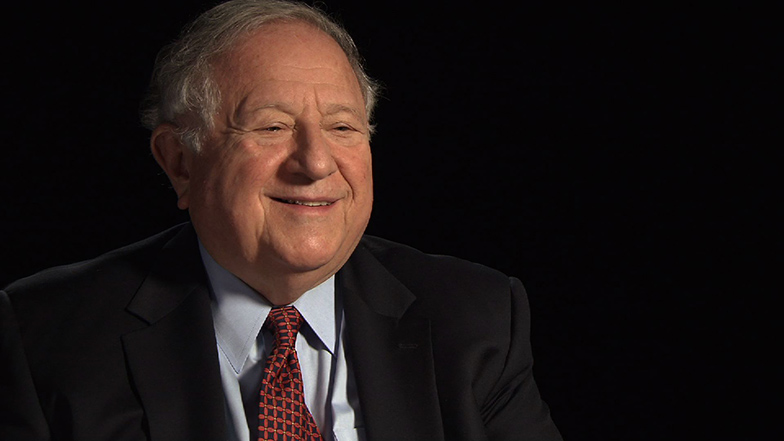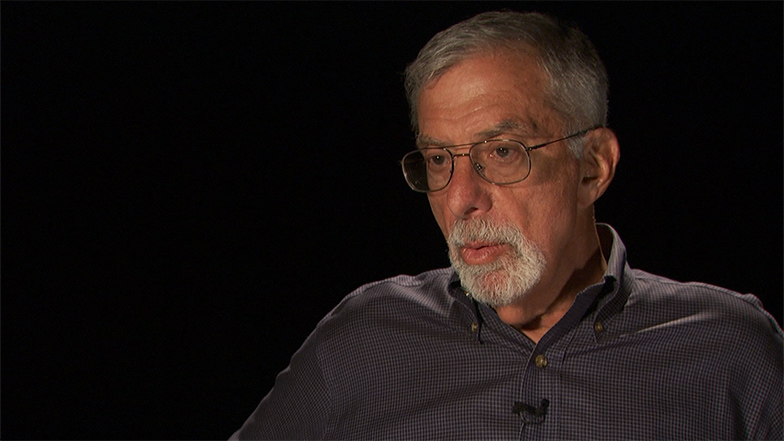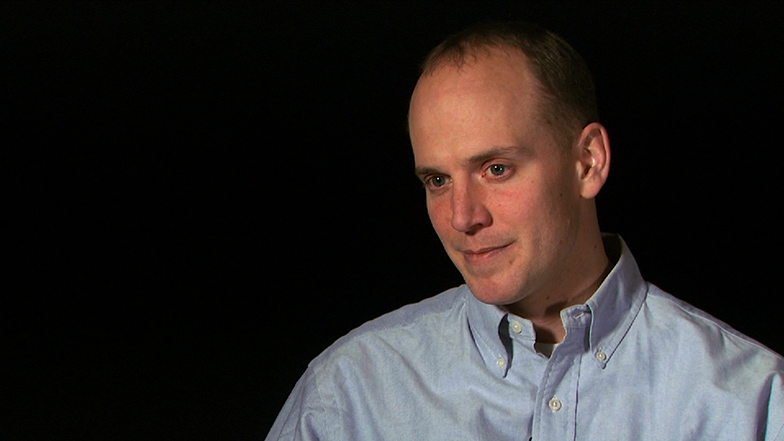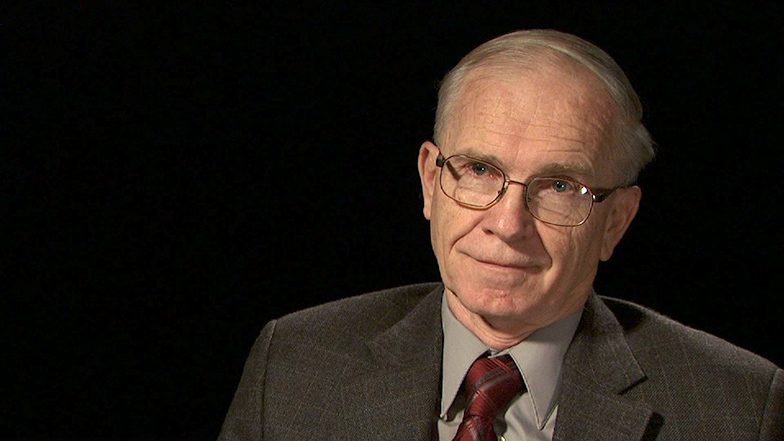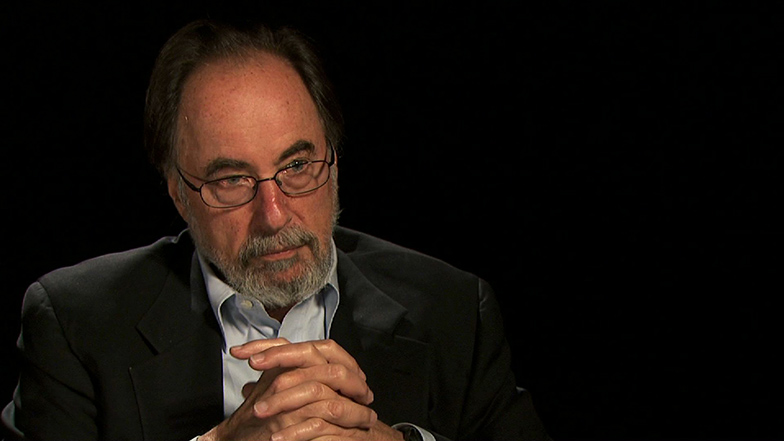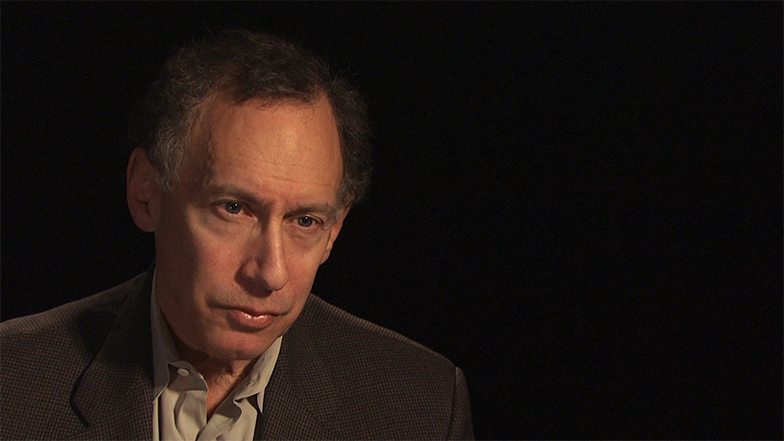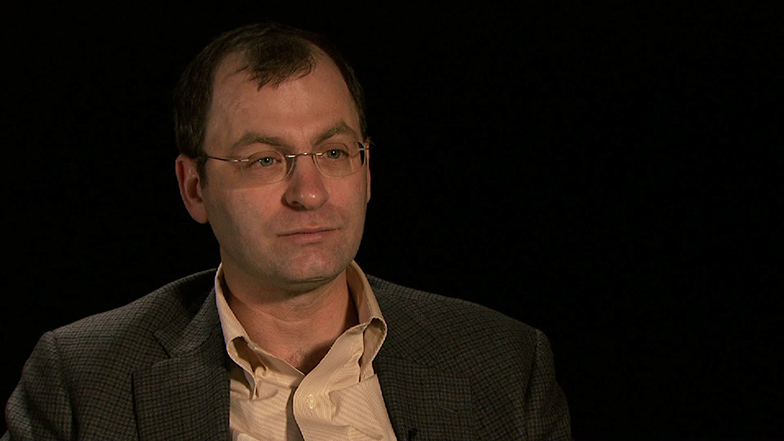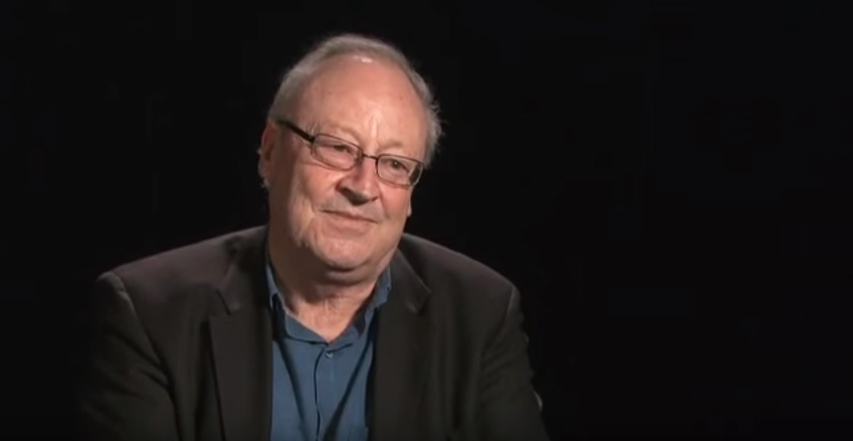Leo L. Beranek
INTERVIEWER: Let's start with growing up in Iowa. What was growing up in Iowa like?
BERANEK: It was a good time to grow up in Iowa, in a sense, and then of course, it changed to the Great Depression while I was there, so I lived through it. But my life started out on a farm. My father was a farmer, and then my mother died when I was 11 years old and we moved to Solon, Iowa, which was a town of about 500 people. At that time I was think, in the eighth grade. Wait, let's see, might have been a little bit earlier. But I was in the Solon schools from the second grade on up to the time at the end of my sophomore year. Now, in Solon Iowa it was the first time I was sort of independent in life because we came to live with my grandmother, my father and I, and my brother because of my mother's death.
They didn't sort of pay much attention to me. I went to school every day and dad did buy me a bicycle, which was the first time I'd ridden the bicycle at that time. I remember the story on that is I remember I got on it on a little hill and ran down the hill and ran into my grandmother's flower garden and smashed her flowers, and I was not very popular that day. But then I needed some spending money. They didn't give me any allowance, and so I saw an ad in one of the local magazines and it was by the Real Silk Company that made Real Silk hosiery and women's underclothes mainly. They were advertising for salesmen. So I wrote to them and said, I'd like to be a salesman. And they didn't inquire as to my age. And so I got a beautiful leather kind of, looking like a briefcase, leather thing with samples of all their stockings and their goods that they put into other clothing. And I sold Real Silk for the two years while I was at my grandmother's. And that gave me enough money so I could be independent.
In school at Solon I was tied for the top of my class and my big competition was a first cousin of mine, whose name was Arlo. We used to go biking together and we competed to get the better grades. This was sort of my constant friend. And then he one day disappeared and he lost his mind, and he went to an asylum after that and never recovered. He didn't even know where he was afterwards. So my best friend had troubles.
In Solon schools one of the things I took was manual training, which was woodworking shop. And that has always been something I've been happy to have done because throughout life I've had to use my hands and to have some sort of formal training in the use of woodworking tools was a good basis for things that I did later. Now at Solon there were several things that were important to the future in my life. And I should have mentioned just before my mother died, my father brought home a one-tube Crosley radio. And he gave me the responsibility of getting this thing set up and making it work.
In those days it took a big outside antenna, which I strung from the house to a tree, which had to be-- it was at least a hundred feet long. And then you had to bring a wire down from it and go in through the window into the house, and then you had to have a ground, which was a stake you pounded into the ground and brought a wire up from it, and brought into the house. And these then hooked into the radio receiver. And we had only headphones in those days. And this was a big revelation to me because I'd never sort of heard the world before then. Now we're getting world news. I was able to listen to the ball games for the first time. And one of the evening programs came from a station called WOS in St. Louis. And it came from the prison, and the fellow who was on this program from the prison played the piano. They called him the king of the ivories. And he stayed on it for two years, became so popular, and people all sent him money, and the prison deposited the money in the bank. And then the governor pardoned him, and so he went off the air after that. But this was my first experience with a radio and I got very interested in it. And I sort of learned how it worked. It was a simple device. And that's not too hard to do in those days. And then that sort of laid my basis for my interest in electronics in later life.
Then, the next thing was that the local school had a band director and he needed some players in the band. And so he came around and wanted to know if I would be willing to learn to play an instrument and he was lacking a couple instruments. He was lacking a bass horn actually and drums, and I chose the drums. He could teach the drums it turned out; he was fairly good at it. And then I got a book on how to be a drummer, and my father bought me a marching drum because that's all they needed then, it was the high school band. And so I used to march outside with this drum bouncing on my knee and I learned to play the drum well enough to be in the band.
Then a little bit later, before we left Solon, my father had a friend who used to be a trap drummer in a jazz band, and he was not going to play anymore so he wanted to sell his trap drums. So my father bought those trap drums for me. Now that's a base drum and a snare drum and some symbols and wood blocks and that sort of thing that goes with trap drumming. And he bought that, and so I then went over to school, set them up in the basement-- they let me do that-- and I would practice my trap drumming in the basement and learned to be somewhat proficient in it.
Then, at the end of my sophomore year my father, well, my father just before that had remarried and we moved then to Mount Vernon, Iowa. Now Mount Vernon, Iowa is near Cedar Rapids, it's about halfway between Solon, where I was, and Cedar Rapids. I should have mentioned that Solon is only 10 miles north of Iowa City where the University of Iowa is, so you kind of get it located. But then Cedar Rapids is the second biggest city in the state of Iowa, and Mount Vernon is about, I think, 14 miles east of Cedar Rapids. When the main highways between the East Coast and the West Coast or New York and San Francisco was called the Lincoln Highway. And the Lincoln Highway or route 30 it was then, went right down Main Street in Mount Vernon, Iowa. So that Mount Vernon was always kind of a place where there was a lot of traffic going through. And there was also a bus service from there to Cedar Rapids, so it was easy to get back and forth to Cedar Rapids.
Now my father started a hardware store jointly with a first cousin of his, they called it Beranek Hardware. And they of course, sold all kind of hardware, and they also had a farm machinery business. They sold McCormick Deering farm machinery. And they sold radios as well. In those days there was a radio called Atwater Kent. There was an RCA radio that was quite well known. Now I was entering my sophomore year in high school. I got through my freshman year in Solon. And my father said, you know, we sell these radios and they have to be installed and sometimes repaired, seems to me you want to learn radio and then you could do that for the store. We now have a college student, a senior, over at college-- I guess he was a junior then-- over at college, who does this radio work for us, but he's going to be graduating and maybe you could sort of learn so you could take over after that.
INTERVIEWER: Is this when your dad paid for the correspondence course?
BERANEK: That's exactly right. And he then got the international correspondence school course on radio. And I took this very seriously. The course was really pretty good for its time. They had sort of examinations and you'd send the exams in and they'd grade them and this kind of thing. And I studied it real hard and then, in the next year, which would be my junior year, my father talked the service man, whose name was Francis Pratt, and he was going to Cornell College. And Cornell College is in Mount Vernon, Iowa also. Cornell College is 12 years older than Ithaca College and it has about a thousand students, even to this day it's about a thousand students, liberal arts school.
So Francis Pratt was going to be a senior when I was a junior in high school, so he was about ready to finish up and leave Mount Vernon. And so my father talked him into taking me on as an apprentice and I would charge nothing, and then I would work with him on fixing radios. So I would go over there quite often. It was every afternoon night and he would have collected a radio or two that had to be repaired and then he taught me how to test tubes and change the transformers and look for troubles. Also, he was an opera buff so he had a phonograph which he'd play these large records in those days. They had three minutes per side, and we would play opera that mainly came from the Chicago Civic Opera Company. So I got used to the-- and there was also RCA came; I just took all the Met people too. But we'd listen to these operas while we fixed radios, so that also stimulated my interest in this kind of music.
INTERVIEWER: Is that where you sort of originated your love of music? Was it that time?
BERANEK: Well, of course, I was already playing drums, remember. And then when I got to Mount Vernon, and I don't remember, it was probably in my junior year. The local fellow who ran the local electrical shop and he wired homes and did that sort of thing, he was also a saxophone player, and quite a good one. And he decided to put together a band and he played saxophone and he got four of us to play with him, and asked me if I would play drums because he heard I had the drums and I don't know how I'd shown that I could do it, but then he tried me out of course. And said, okay, you're good enough. You can play drums with this little band. So we put together this six piece band for dance band, and we played at concerts mainly in Cedar Rapids. The local Elk's Lodge would have dances every Saturday night and we'd play for Elk's dances and then it got so that we'd play occasionally in Mount Vernon for student groups. And then gradually we started traveling greater distances and started a crazy group in the band, but we did enjoy the music, and it made me some money.
And then at the end of my junior year-- now, Francis Pratt had graduated so I now became the radio man. I set up a little shop above the hardware store. They had a room up there they were not using. And put a little ad in the newspaper: radio repairs. And my father gave them the business from the store, and I became the radio man for Mount Vernon, Iowa. And I fixed radio all over the town as they needed. Some needed new tubes and sometimes there'd be some parts burned out in them. And I got a pretty good course of sprouts with Francis Pratt so that I was able to handle this quite well. The result was that by the end of my high school, then I'd applied to Cornell and I was able to be admitted. Of course, my grades in high school were okay. The tuition at that time at Cornell was $400 a year. And I had saved about $500 because I lived at home with my parents and ate and lived there, and I took radio money and playing in the dance band money and put it in the bank.
So in the local bank I had saved up about $500. Then it came in August in 1931 I think it was, when I graduated from high school-- and after I graduated from high school, and I began thinking as bank failure was going on-- now this was the start of the Great Depression, 1931. And bank failures were going on. I got worried about my $500, so I went over to the bank that day, this was in August, and I asked for $400. And the teller said, well, I can't give that to you. I got to call the vice president. The vice president came over and said, what are you going to do with the money? And I said, I'm going to pay my tuition for a year at Cornell College. Well he said, if you wanted for any other purpose I wouldn't give it to you. The next morning the bank closed permanently and I lost my last $100 in the bank failure.
INTERVIEWER: What excellent timing.
BERANEK: Incredible, just unbelievable. And the result was that I was paid through one year of tuition at Cornell College, and I continued then to fix radios and play in the dance band. Then in the sophomore year, things got a little harder in terms of being able to earn money, and the school was not too interested in giving me much scholarship help. They gave me, I think, $100 or so, but they claimed they had to give this to all the kinds of students there now, and they didn't have that much scholarship money to give me a complete scholarship.
It became apparent start of my junior year that I couldn't make the money to pay my tuition. So I decided to look for a job for one year. So I went to Cedar Rapids, Iowa and there was a new young company there called the Collins Radio Company. Now that's now a big national company, which actually sells the radios that you find in almost all airplanes and navigation equipment, that kind of thing. It's a big company today, but then it was just starting up. And Arthur Collins was a young president and I told him I wanted to get a job and he said, okay, we'll give you a job. So I went to Collins Radio Company, was there during the year that really would be my junior year, but I took it off that year and worked for the Collins Radio Company.
This turned out to be very good. The first part of it I was put in with the traveling salesmen. We were going out and selling sound systems around Iowa, particularly the funeral homes. And so I understood equipment because I'd been fixing radios. I understood equipment and the salesman understood how to sell, and so we traveled together around the state and that business didn't pay off well enough, so Collins decided after a few months that he was going to stop that. And so then he said I could work in the engineering department as an assistant to the engineers. And this was good because they had a group of young engineers there and I was able to sort of-- they would give me a diagram for example and say, assemble the parts and put this thing together on the breadboard and then we can test it. And they'd give me a diagram of what they wanted to build. And so I could do those experimental things for them that year. And this worked out quite well because I got to see how a big company worked-- not a big company, but how a company worked and I think the employees were under a hundred at that time. And I saw the business of time sheets and punch cards when you came to work, and how some people didn't do a good job and others did, and it was an interesting experience all around. Arthur Collins took kind of a liking to me and he invited me out to his home several times, and I got to meet his family, and this sort of thing went on.
Then after I'd been there a year I decided to go back to Cornell and he encouraged me to do that. He said he thought I should certainly get a Bachelor's degree. So I went back to Cornell. Then I majored in math and physics at Cornell. And one of the people who did me a lot of good in my early life was a professor of mathematics there called Elmer Moots. Elmer Moots took an interest in me and said, you've got to learn mathematics as well as you can because it's going to be very useful if you're going into radio, which I was talking about in later life.
And then another thing I did at Cornell, the speech department professor was talking with me-- now remember I'm a student at Cornell-- and he was talking with me and he said, you know I'd like to record the voices of my speech students. So I don't know whether he suggested or whether I looked it up, but we found a recording machine that recorded on aluminum disk and this recording head was pulled across by a screw as we called it, and the needle was a diamond or something and as the thing rotated it would make the grooves on the disk. And it was on aluminum disk. So to play it back you had to use fiber needles. So I got figuring with him. We charged the students a dollar for a six inch record that I could sell them for a dollar a record, and then each student would get two a year, and I could afford to buy the equipment and sell these records to the students and this pleased the speech department head. And so for a year I did recordings for the speech department. And then after that I got busy with other things and another student took on that recording.
Now, then my radio business was both ups and downs. Sometimes it was good and other times it wasn't. And I decided sort of in the beginning of my senior year that I was going to really put more effort into wiring homes because the World Electrification Program by the federal government came into existence. And they were underwriting the wiring of homes and the underwriting electrical companies putting in new lines into the farms around. And so I advertised in the newspaper: Will wire homes for you. And so I got quite a few wiring jobs and in fact, Cornell College then, seeing that I was able to do this had me wire an addition they put on to one of their dining room halls. And then they had a whole complex of two houses they put together and built a connecting link between them called the Rood House-- R -O- O- D. And they wanted new wiring put in that house, and so they gave me the job of rewiring the whole house.
And then I got another idea and that was they were building a new student dormitory, a men's dormitory, and I said, well, you know the radios we have today really need an antenna. They don't work very well without an antenna. And you're going to have students in all these rooms now and they all want to have radios, and what are you going do to give them some way of making those radios work? I said, why don't you-- and I've been reading in the magazines, why don't you buy a master antenna system? And then run wires to every room and then the students can plug in their radio into this plug on the wall and they'll have that antenna, and they'll have first class reception on the radios. They thought that was a great idea. I, of course, before I talked to them on this, I'd looked up how it's done and what it would cost, and so I said, well, look I'll furnish this whole thing for you for-- I forget how much it was, $380 or something to wire a whole place. So they had the electrical people put in the conduits, so all I had to do was push the wires down through the conduits to each room. Then there was a little amplifier in the attic and then that went up to an antenna on the roof, and so the antenna on the roof would go into the attic and go to the amplifier and the amplifier would send the signal to all the rooms. And I got that finished just before I finished Cornell to go-- actually, I would stay there that summer, before going east.
INTERVIEWER: You were quite the entrepreneur.
BERANEK: Well, I was busy. Now some people said I must not have got that much out of college because I seemed to be doing everything else in that period. Actually, my studying, I studied every morning in the library and I went there because I wanted absolute quiet and then I'd go to classes during the day. And then, about 3 o'clock in the afternoon I would go to my business and I then eventually in my senior year had two people working for me. So we were wiring houses and we were working together. And they would work in the daytime when I wasn't around, and then I would come round about 3 o'clock and join them in whatever was going on. Now, this leads me to the summer between my junior and senior year, and I was at Collins Radio, but I tended to come back to Cornell sort of on the weekends sometimes and there was a dentist there and his wife who lived in a house and were very interested in me for some reason. And I would go back that summer and I would just stay at their house. I didn't have a room or anything at Cornell during the summertime.
So I came back this one day in August and I think I got down there Friday night and I slept overnight at the dentist's house. And then the next morning I went to the library at Cornell and I decided to read some technical magazines that were there. And there were magazines that were called like Radio News and the Proceedings of The Institute of Radio Engineers and that kind of thing were in the library there. And I was reading those over and then I went out and got lunch at noon and remember now, I told you the big highway from east- west was going right through Mount Vernon. I was coming back from lunch going down the street and here was a car, a Cadillac, Massachusetts plates on it, standing with a flat tire. And the guy out there looking and it apparently just happened. He got out and he's looking at it in kind of a sad way. A fellow who is probably 55- years- old or something like that. And I stopped and I said, well, could I help you? He said, you sure could. And so, I was dressed in jeans or something. I was not very fancily dressed. And he opened the trunk and I got the dirty tire out and got the jack out and jacked the wheels up and first had to change the tire then, put on the spare from the trunk.
And we got talking then. He said, what do you do? Well, I go to this college up here called Cornell of Iowa. I'm in Cedar Rapids right now working for a company called the Collins Radio Company. He said, oh, that's my business, radio. And so immediately we had something at least in common. And then we talked some more and he said, well, what are your plans? And I said, well, when I get through with my senior year I'd like to go to graduate school. Professor Moots, my math professor, said that I really ought to think about graduate school. And so I am thinking about this. And he said, well, how are you going to do this? But I said, I've got to have scholarship money. I just don't have money. My family doesn't have money because the Depression practically wrecked them, and my father had big debts that came from his previous life on the farm in Iowa. And the result was that I said I'm going to have to apply for scholarships. University of Iowa, University of Illinois, University of Minnesota, and so on and some place maybe I'll get a scholarship. He said, well, you ever thought about Harvard? I said, well, Harvard? That's for rich students, a rich man school. He said, they got more scholarship money than any of these places you've named.
He said, look, how are your grades? And we talked about my grades and he said, look, I'll tell you. Let me get in the car. And he came out and got a pad and he said, I'm going to write down the names of two people that you write to. One at Harvard and one of them will be the person that'll be in charge of giving you the blanks to fill out for a scholarship. And the other will be admission papers. And he said, now, when you send these things in finally and you have your references, use me as one of your references. And so, this is what I did then.
INTERVIEWER: Another incidence of great timing.
BERANEK: It's impossible to believe. And then it turns out that he had been an assistant professor at Harvard and he'd gone off and set up a company in Winchester called the Browning Laboratories. And his name was Glenn Browning. And the other thing that happened in this automobile thing, I forgot to tell you.
He asked me my name and I told him. I said, well, what's your name? He said, my name's Glenn Browning. I said, you're Glenn Browning? I was in the library this morning and read one of your papers in the Radio News. Well, I really had a friend then and that's why he was so good to say he'll be a reference from then I think. And so I did make all these applications to the universities and to Harvard and I had my professors be references and put his name down as a reference. And then came a sort of first of May and all the letters coming in from the schools. Every one of them turned me down except from Harvard, which gave me a full scholarship for the year. And so I was off to Harvard.
Now, I'd saved a little money again because I'd worked for Collins and I'd also done this wiring I told you about. And so I forget exactly how much I had, but I had enough money I thought I could just scrape through with a full scholarship to pay a room and board in Cambridge. This sort of is the separation now between Cornell of Iowa and Cambridge. Do you have any questions?
INTERVIEWER: No. You're very nicely going through a whole list of my questions. I'd like to hear a little bit about, and I know we have a lot to cover. A little bit about study at Harvard and maybe some perspective on the difference between Harvard and MIT.
BERANEK: Well, of course, I was at Harvard quite a while. I arrived there in 1936 after my graduation at Cornell. The first year I took four courses and these were courses now really in electrical engineering because the school I applied to was what was called engineering and applied physics in those days. They don't have that same title now. They have an engineering school now. And I think they also have an applied physics department still, but these were kind of grouped together. And this laboratory I went to was called the Cruft Laboratory-- C- R- U- F- T. And the Cruft Laboratory had been set up sort of in the early days of radio at Harvard. They worked with Marconi and they had some of the equipment that would be used at that time in this early transatlantic broadcasting at the Cruft Laboratory.
And the professors there, different ages, some were younger and some were older, the older ones had really known Marconi because he did his first broadcast from Cape Cod, Wellfleet actually, across to England. And those were the first transatlantic broadcasts that ever took place. They were code of course. They were not voice. They were code signals that were sent across. And so now I was studying in this really quite famous radio educational thing at Harvard.
So I worked very hard on those four courses. I figured I was coming out of a small school in the Midwest, coming up with these big boys at Harvard who came in with all these wonderful grades and backgrounds and so on. Some had been undergraduates at Harvard too. And I was not going to let them beat me out. And so I really studied all the time. I didn't go back to Iowa for Christmas vacation. I just studied right through. And then Harvard had a month called reading period, the month of January. And the exams then occurred in the last week of January were the exams, or maybe, the first week in February. I don't remember.
But anyway, I set aside a week for each of my four courses and I really reviewed everything that they had taught me. And then I went to the library and they already had copies of previous examinations in each of these courses. Harvard had kept those, so I went over all the previous exams to see what those professors were asking. And when the exams were through I came out with three A's and one B plus at the end of my first semester. At the end of my second semester I had three A's and one A plus. So I even did better. And so I came out of that first year looking pretty good, but I had trouble in that year with finances.
I found after being there a month in the month of September at Harvard I was not going to have enough money if I was going to eat on a dollar a day, which is what I was able to do. And I decided I'd have to cut down on-- go down to two meals a day and spend no more than $0.50 a day if I was going to get through with the money I had. Now $0.50 a day you could get breakfast, you could get a coffee, and usually some kind of an egg and toast, and a small glass of orange juice. And for no noon meal, and at night they had what they call the blue plates in the local restaurants, and you would get a piece of meat and potatoes and some vegetables. I could get a glass of milk with it and maybe a desert, like a piece of pie and so on. That cost me about $0.35. So for $0.50 a day I ate for one year. I lost weight, but I got through that year.
Now, this of course, brought a question of what's going to happen the second year? Well anyhow, Glenn Browning then, I kept in contact with him after I got here, and Glenn Browning had been a vital part in my getting to Harvard. They talked to him and he said, well, this fellow looks pretty good. Why don't you take him? And so he was instrumental in my getting the full scholarship at Harvard. And so I kept in touch with me. He lived in Winchester and had this company. And he had two daughters who were young. I think the oldest one was maybe 11 years old the or something, and the other was about 7 or 8 or 10. The older one of the two daughters just in the last month I got a long letter from her telling me what she'd been doing all these years, and she'd heard about me through my memoir book, and so she'd written to me.
Anyhow, that Browning connection kept on and then he said, I'll give you a job through the summer between my first year of graduate school and my second year of graduate school in the summer. I'll give you a job that summer, which he did. And so I earned a little money that summer, but still, it wasn't enough really to take me through the next year. And I was quite worried about this. And you might say, well, why didn't you borrow money? But in those days the students were not accustomed to borrowing money. I did eventually borrow a hundred dollars to get through that year, but that was not very common. Today of course, students are on these big bills today. We wouldn't have thought of that in those days.
Well anyhow, I was working that summer and I went back one Saturday to the Cruft Laboratory and I didn't work at this job he had on Saturdays. Went back there on a Saturday and one of the business people in the laboratory said that Professor Hunt wants to see you. Well I'm wondering, why would Professor Hunt want to see me? I knew he was there because he was one the professors, he was not professor in one of my courses, but he was there. And his specialty was acoustics and he was a fellow who, I forget his exact age, but he was not very old. He was not over 35. He was a very vigorous fellow. He walked around always although he was ready to catch a bus I always said. He was always walking very fast. So I said, well, is he here? Yes, he happens to be here today and why don't you go back and see him? And I knew his office in the back of the Cruft Laboratory on the main floor. So I walked back there and walked in and said, I'm Leo Beranek. Oh yes, he said, I've been wanting to talk to you.
He said, for the first time as a professor I've received a grant from the Bursar's Office at Harvard by which I can hire an assistant. And he said, I've been looking over the students that I might hire as an assistant and I also talked with a couple of your professors that you took courses on, and your record is very good. I wonder if you'd consider being an assistant to me? And I said, well, what does that mean? He said, well, you could take two courses instead of four and you'd work half-time for me and I'll pay you, I think, it was $800 for the academic year. He said, I wonder if you'd think about that. And I said, well, Professor Hunt, I'm not going to have to think very long. I said, I really need financial help to get through my next school year and I would love to work for you. And I'll do the best I can. And he then said, well, now I'll be back in a month and in the meantime, I'll set it up so that you start getting paid the first of September.
And so the middle of September he got back and then we made planning for the first year. And of course, I took my two courses through that year and then Hunt said, now what we're going to do, I want to develop a lightweight phonograph pickup. The reason for that is that during Harvard's tercentennial their 300th anniversary we recorded all the main events there, including Franklin Roosevelt's speech and others. We recorded all these but we did them on vinyl disk and that meant that we had to record and cut little sliver of stuff that went off on the floor. It made it embossed into the thing by cutting actual material out. But there's no way to play these records back because all of the standard pickups weigh too much. They're made to play on these three minute disks that we have and--
INTERVIEWER: Were those 78s?
BERANEK: 78s, that's right. And they had a metal needle in the pickups and the pickups were heavy and you play on those shellacked disks they were. But he said, we can't play our vinyl disks with those because they will just tear them up. We got to have a lightweight pickup. So he said, I want to develop, this year, a lightweight pickup. Now he said, look, there's several things. We're going to set a laboratory up for this project up stairs. They give me a room for it. And I've also arranged for you to have a room next to it as your room, your own private place. And I want you to put in half your time and first thing I want to do is to build a loudspeaker that will play low notes. We have a speaker that will play high notes, but we don't have one to play the lowest notes. And so he said, I'll help you with acoustics knowledge, but you're going to have to put the whole thing together and work it out with the machine, the carpenter shops on how to build the thing and so on. So I built a loudspeaker that was probably about five feet wide and maybe five feet high and six feet deep. It had two big, cone loudspeakers in it and with that trumpet we made with this wood I put up we could get big base notes out of the thing. It was fantastically successful. And so then we used the high frequency part they already had, which we put on top of it.
And then as he worked on his successive models of these lightweight pickups and we'd play them back through this loudspeaker. And he said the reason he wanted the big loudspeaker was he wanted to be sure that any pick up he developed would cover a wide range of frequencies and sound good. Well, of course, what happened was we found that his early models of very lightweight pickups had a ring to them, sort of a tinny sound to them. And so those had to be dampened by putting in some kind of damping material on them. And then he would make a little design and give it to me and say, take it down to machine shop and talk with the machinists and get this thing changed, and when they get it finished bring it back up and we'll test it. Of course, then he said we also got to build a better amplifier for this loudspeaker system because we can't buy a good amplifier. And so I had to design an amplifier, which was also interesting. And I was finding this a very good way to learn a lot of things of course. And he was good at telling me what to do and getting me to express my own feelings as we went along. I started to get to know something about what was going on.
By the end of the year he developed a really, a very high-grade, lightweight pickup that you could use on vinyl records without damaging them. This then became the front page of one of the radio magazines, a new lightweight pickup and that then was the thing that made possible the 33 1/3 and the 45 records, rpm records. They did not use his pickup. He tried to sell it to various companies, but what happened was he did not visualize that there was a hi-fi market. He tried to sell it to people like Wurlitzer who made phonograph playback things for restaurants and bars and things like that. But they said, we don't really need these because we don't mind wearing our records out. We just put more in because there are always new ones coming out all the time, so it's no problem.
So he never was able to sell this. He hadn't visualized a hi-fi market. But one of the companies-- see I forgot its name right now-- had decided to try and put out pickups and advertise them for people who might want to play them in their homes, the so-called hi-fi market. And they would sell the turntable and sell a lightweight pickup. Well, they pretty much copied his pickup, but they were able to do it just enough different so the patents weren't a big problem. And you couldn't patent the basic principle in it because the basic principle was simply a moving coil in a magnetic field and that had been patented a hundred years-- I mean, many years before.
So he never got any money out of this really. But he did get the reputation of having built the first pickup that would make possible later the 33 1/3 and the 45 records. And of course, the 33 1/3 records then went how long?
INTERVIEWER: 20, 25 minutes?
BERANEK: It's in my book, I've forgotten the time now. It was a long time compared to the old 3's. And this was a big change. So we got through that year and I stayed with him another year as his half-time assistant. And that year then we went into studying acoustics in rooms, which is quite different and of course it expanded my knowledge of acoustics. And of course I'd never thought about being an acoustics person. My plan was to go into radio. But now I'm working for him, so that's what I'm learning. And so the second year he said, now, a new book has come out.
In fact, I didn't tell you that during the first year I was with I also took his course that he was teaching in acoustics. And his course in acoustics he used a new book that had just come out from a professor at MIT called Phillip Morse-- M- O- R- S- E. And Phillip Morse was a theoretical mathematician who decided to spend a year or two in the field of acoustics because he thought that there were things that he could do mathematically in that field that had never been done before. And he brought this book out, so Hunt used that book in his course, and I was taking that course so I studied Morse's book then along with Hunt's teachings. That was my first year with Hunt. And the second year he said, now look, there's a lot of things in Morse's book that you and I have studied, but there's not much data. It's all sort of theoretical work. We really ought to make some measurements to see how true that theory is.
Morse had not done any experiments. He just published it all as theoretical work. And so then we planned to set up experiments to study the theoretical work. And these were now small rooms that we set up first off because the theory was for any size of room and we decided to study small rooms because we could change the dimensions of a small room and we could put materials on different surfaces. That didn't take much acoustical material and it was all much simpler than trying to work with real rooms. And so we made studies in these small rooms and then at the end of that second year Hunt-- let me just think a little bit on this. Hunt published his paper-- yes, he published a paper in which he-- it's probably halfway through that year. He published a paper in which he acknowledged that I'd been his assistant on it.
INTERVIEWER: Is this the paper, The Design of Speech Communication Systems?
BERANEK: No.
INTERVIEWER: No, that was yours.
BERANEK: That's way later, much later. This now is still back in 1938, 1939, in that region. The acknowledgement was at the end that I'd been his assistant and taken a lot of the data. And then we decided, I guess it was the second semester, we decided to do full room experiments, and I worked on the full room experiments. Then we got a joint paper out which had my name, and it was a Chinese student, Dah- You Maa, who was also getting his doctorate, and he did some of the theoretical work for this paper-- and me, and the three of us then were co-authors on a paper that dealt with room acoustics. And that was my first paper really, that meant something in the field of acoustics. And it's still referred to often as the Hunt, Beranek, and Maa paper.
Then, by this time now, I was remember in my first, second year-- let's see. I came in '36 and got my degree in '40, so that would have been four years then. So in my third year, which is my second year with him, I had halftime on my own. And by then I didn't need to take anymore courses, so I was now working on my doctoral-- potential doctoral thesis. And I decided what I'm going to do for my doctoral thesis and I had passed the qualifying exam. You have an oral qualifying exam to prove that you're going to be a candidate for the doctorate. And then I went to Professor Chaffee, who was the head of the Cruft Laboratory, and asked him if I could get machine shop help to set up the equipment I needed, and I wanted to start measuring something I called acoustic impedance.
Now the reason for doing this again was Morse's book was heavily involved with using the concept of acoustic impedance, but nobody had ever measured it. It was all theory. And so I had set up an experiment that would measure acoustic impedance of materials. And these are materials like you'd use in a room, Celotex or whatever companies things you find these tiles and determined what the acoustic impedance was.
Acoustic impedance is a measure of how sound behaves inside the materials and then you could better judge how you might redesign a material to make it absorb sound better because you might understand better what's going on inside. And so I then set this equipment up and had it going. Now what am I going to do now at the end of working for him for two years and gee, again, one of these very queer coincidences. I got a call from Professor Burkhard. I think the call came in at about April, something like that. It's in my book. He said, first of all, are you Leo Beranek? And I said, yes. And he said, well, we've decided to give you one of Harvard's top scholarships. And he said, this scholarship will let you be full-time here or if you want to go to Europe to study it'll cover your study in Europe. And if you go to Europe we'll pay your transportation. And you'll get a letter from the president of Harvard saying this is one of their top scholarships. That they should give you all kinds of good recognition if you appear anywhere, that the school is fully behind you. And this will pay you something like-- see I was getting for Hunt about I think it was $800 a year and this was going to pay me about $1,600, about double, and I didn't have to work. It was completely free money. And so then I really got down to work on my doctorate thesis. But I thought about going to Europe, but the only place in Europe acoustics was taught was in Germany. The war was starting, the Hitler War.
INTERVIEWER: That wasn't good timing.
BERANEK: And so I said, there's no way I can go over there. And so I decided that I would stay at Harvard and work for my doctorate just full-time at Harvard and I cleared that with the Dean's Office to make sure that it was all right that I didn't go to Europe. And so I then was able to plow into this work full-time, night and day, working toward getting a doctorate.
But now remember, this was only in some ways, only the third year because I was working half-time time Hunt. But it was only my fourth year there at Harvard. And to get your doctorate in that short a time was not too promising because they liked to have you work longer. And in fact, Hunt was not very encouraging. He said, I think you're going to have to spend another year. And he told me this in about, I would say, December of my fourth year there. And I said, well, I'm going to really try hard to get my doctorate this spring because there's a war starting and I said, I don't want to get in the situation where I don't get my doctorate because I have to go off to war. The drafts were coming in. The congress had voted in a draft and this kind of thing, and I didn't know whether I'd be in the military. And so I really got down to work just night and day, slept as little as possible. Just tried to get that thesis done and then there was a woman, a secretary in the applied physics department, who said she would type my thesis for me, which she did. And I had some help from a photographer there in the department to take pictures of my equipment and all. And so I started putting his thesis together in, I would say, starting about in March.
And then I went over to Hunt and I said, look, now I've got this much done. Here's some graphs and my findings and all. And he said, well, you can try. He said, but you're going to have to get through a committee. He said, I'll see that the committee is appointed now that when you hand in your thesis there will be a thesis committee. And if you pass your thesis that's okay, but he said, I can't guarantee with the amount of work that you've done whether they'll approve it or not. Now that was along in December and of course, I worked hard up until March and then by March I was I guess I had talked to him in March finally. Then put this whole thing together. And by the first of May or something or middle of May I had this-- yes, I think the first of May I had it ready or roughly then to give to the thesis committee and they came back and said that in two weeks afterwards that I had passed my thesis inspection. And then the rules of Harvard were there would be an oral defense of thesis examination. And this usually is done before the thesis committee and they will then-- they have read your thesis, but now they're going to examine you to see if you really know what you've got in the thesis.
So Hunt now wanted to protect himself because I was his first graduate student. And so he appointed the best committee he could find. One of the professors got a Nobel Prize and he got Chaffee, who was the head of the laboratories, and he got a fellow named G.W. Pierce who was one the famous acousticians, older men at that time, and then Hunt. There were four of them. And it came to my thesis day and normally just the committee examines you, but there is a rule at Harvard that these things can be opened to the public. And one of my pals that I developed in graduate school there, Robert Watson, decided to pull a little trick on me. So he passed the word around, why don't we all go to Beranek's defense of thesis? And so he drummed up over a hundred people to go to my defense of thesis thing. And they had to move it from a room into an auditorium when he told them there was going to be a hundred people there. And it became quite a circus almost.
And so I gave a story about my thesis and what my basic thoughts were and what the future work would have to be done. And then the head of the committee was Chaffee and he turned to the audience and said, now we can take questions from the audience first and then they'll be questions from the thesis committee. Well there were some interesting questions from the audience, but they were all answerable. And then we got into the examination by the thesis committee. And one of them, I forget which one-- it was Chaffee or what's his name? Van Vleck, who was the Nobel Prize winner, Professor Van Vleck. One of them said, well, why don't you do a simple thing for us? Assume that an acoustic wave is being sent through air from one point to another, and while it goes by you, tell us how the power varies as it goes by you, the acoustic power.
So I'd never done this, so I set up the mathematics and put it out, and I said, well, it's interesting. The power goes by like sausages. It doesn't flow smoothly as you radiate sound. And that's what my mathematics showed. The thesis committee said, we've never seen that before. And I said, well, I haven't either. Why don't we just call this session off and professors, we're going to go and talk about what you showed us and see if we think it's true or not. And so they left me and they came back later and said I passed and presumably, they thought what I did was right. And so that got me my doctorate.
The big thing that happened, I wrote two papers in June already, submitted them to the Acoustical Society and they published them, of all things, in July. Incredible. Today it would take at least 10 months to get a paper published. I sent them in, and they published them right away. Professor Morse at MIT read those newspapers and was very interested. And so he and two of his students published a paper very soon after that. And then he became one of my closest friends, and he even wrote me a letter and said he'd like to do some research jointly with me. He'd do the theory and I'd do the experimentation. And then along in November, he called and said that the National Defense Research Committee, which later became the Office of Scientific Research and Development has been set up by the president to do civilian research related to the military effort. And he said, the first laboratory they set up is the Radiation Laboratory at MIT. And we just got a request in he said, that I'd been called by-- the president of MIT was Karl Compton and Karl Compton was on the NDRC Board. And Compton said, we got a request from the military to do something about noise and bombers. And he wanted to ask Morse if Morse would be willing to take on this project. And Morse said yes. And then called me and said, this work is close to what you've done on your thesis, would you be my assistant? Would you come down to MIT? And so I said, yes, I sure would. I'd like to work with you. And I already have my doctorate.
This was after my doctorate. This was now in November of 1940. Then I told Hunt and Hunt blew his stack and said, nothing doing. He said, they've got the Radiation Laboratory at MIT and they can't have every laboratory that comes in. Furthermore, you're a Harvard man and this work should be done at Harvard and I, Hunt, should supervise it and you be my assistant he said, not Morse. And so, I said, well, I've told Morse I'm going down there with him. And he said, well, I'm going down to talk to Compton. So he goes down and talks to Compton. He said, I just think it's the wrong thing for MIT to have all these things. And Compton called Morse and Morse said, well, you've already given me the job and I don't intend to give it up, and Beranek said he's coming with me. And so then Compton, realizing he had two people who were going to give him trouble, so he called them in and said, well, plague on both of your houses. We'll let Beranek run the project. This is now a project which I didn't even have any idea how big it was going to be or much about it. And they said, well, to supervise you we'll set up a supervisory committee with Morse as chairman and Hunt as vice chairman and they will sort of look after what you're doing, but the project's going to be yours.
So I met with Morse and Morse said, we got to get a budget together. We're going to have to have a meeting in New York with some acoustics people there and the military we will have to ask and we'll talk about what they want really. And so the meeting was set up in New York and the military, the Air Force people came. In fact they were called the Air Corps in those days. The Air Corps people came. And they got Harvey Fletcher, who was head of physics research at the Bell Labs to come over. And there were some other acoustics people of importance there. And they asked me what I wanted.
Well I said, it seems to be what they're asking for is a new acoustical material, and they want it to be lightweight, highly absorbent, and be fireproof. And there's nothing on the market like that today. It would have to be a new invention. And I said, I could probably develop this in a year and I'll need an assistant, and I'll need some laboratory money, and some shop money, and some equipment. And let's say, Harvard just told me that they'll pay my salary, so I don't even have to charge you for my salary, and they wouldn't want any overhead for this job. And so I said, I think I need about $4,000. It was quiet in the room and then the Air Force man stood up and said, look, this is ridiculous. We want this job to move. And it's going to have to move fast. And if it's not going to be possible for you to dawdle along over a year and invent a material. I'm saying that we're going to ten times the money and you're going to have to spend it in a half a year. And we will then appropriate even a full year for you, but that'll be about $80,000. And this was $4,000 I was asking for.
Well, I never thought of spending that amount of money. So I got back to Harvard. I then had to figure out-- I had to hire people to work for me because now this was going to have to move. And so I set up a laboratory that grew in the next couple of years to a hundred people. And our first job was to find a new material to put into airplanes that would be fireproof and absorb sound better than everything else because the complaint was that the noise was so great in the pilot's compartment and even in the compartments where there were gunnery people that they got fatigued and it was very difficult to communicate. They found that if you went above about 30,000 feet their communication equipment didn't work well because something-- the equipment got weak and the noise stayed loud, and you would end up not being able to use the voice communication equipment. And everybody had to wear oxygen masks in those days, nothing was pressurized. So they had to always talk through the oxygen mask to each other. And so then I built this laboratory and there was a description of all the things that went on that year in my book.
And what we did, we developed a new acoustical material, but the project changed. It changed in as much as the military decided we really wanted to improve our communication equipment. It's got to be able to handle this noise. It isn't just a matter of bringing the noise down some, it's still going to be too loud. The equipment has to be better. And so immediately we went into a study of this equipment and found that the earphones were the biggest problem. They were not suited to work at a high altitude. The human voice got weak at high altitude. And the microphones in the oxygen masks were not very good. They ought to be better microphones. And so we put through all these changes. Within a year we had new earphones coming out and we made a major difference in speech communication in military planes in World War II. And this was all done before pressurizing because after pressurizing you could pretty much do as you did in your living room. You could talk and it was not that much trouble. But we got so everything worked with the equipment then we had to use.
Then at about 1940 when this started, by 1943 the Kamikazes were coming into existence. And it was decided that they had to do some studying of how to improve the combat information centers on ships. And the naval research laboratory had decided that because my work had been so successful up until then, why didn't I take on starting a new laboratory to investigate how to fight the Kamikaze threat. And that led that my setting up a systems research laboratory, which was a ship on land down at Jamestown, Rhode Island. There's an island there, Connecticut Island or something and the tip of it's called Beaver Tail. And this became the Beaver Tail facility then. And the new building we set up, even a ship on land. And in the book there's a big lot of story about the difficulties of getting the equipment there because the Navy's regulations were you couldn't put in modern shipboard equipment on land. It had to go in the ships, so they had to commission my laboratory as a ship in the United States Navy even though it was a building. And so in effect I became the captain of a ship in the United States Navy, though they didn't call me captain.
Now in all of this, Professor Morse at MIT and Hunt were still the supervisory committee for my work, so I was in constant contact with Morse. And when the war was over I was then looking for a job permanently. I actually stayed at Harvard. I took a job as assistant professor that year at Harvard after the war in 1940, when the war was over, 1945 when the war was over. Sorry. Morse then talked to Compton and said, why don't we get me to come down as an associate professor at MIT? And so, I was now also very seriously considering the full professorship at the University of Notre Dame. I hadn't even thought about some possibility at MIT. I got this call from President Compton, Karl Compton, to come to MIT and talk to him about becoming an associate professor there. So I did, and I had a discussion with him about the job and I had been given this offer at Notre Dame where I was to have a whole laboratory to myself, where at MIT they already had set up an acoustics laboratory and Richard Bolt was the director of it. And I'd be coming in without any title really, just as associate professor.
Well, Compton thought of it and said we'll make you the technical director and make him the administrator director, so you'll have two directors in the lab. He said, well, in regard to your salary you say that they made you this better offer at Notre Dame and I didn't tell him what the offer was, but he said, we'll do better than I told you already on your salary because we really want you here. And then Compton did an interesting thing. He said now, I don't want to be accused of being a liar, so I'm going to call in my secretary and dictate to her what I've just told you. And that will be a letter that will go to you making this offer formally. He said, presidents often are called liars because they dictate something different after the meeting and we're going to have this be really straightforward. So that's what happened. I got the offer. I called Notre Dame and turned down the job out there, which made them unhappy because they had thought I was coming. I then became, along with Dick Bolt, in the new acoustics laboratory which had been going only a year, he was director of it and I was the technical director. And so whatever that meant, we worked together jointly to make this thing work.
INTERVIEWER: That was the first time you worked together?
BERANEK: That's right. First time we worked together. Now I had met Dick Bolt at acoustical meetings before then. And he was a very personable young man. And in fact, we got along exceedingly well in this new laboratory.
INTERVIEWER: Let me ask a question before we go on. Can you talk a little about the differences between Harvard and MIT?
BERANEK: I certainly can. So I came then to MIT, 1947 I think it was, in the fall. I think that's right. Then of course, I went to the electrical engineering department and Harold Hazen was the chairman of the electrical engineering department. Electrical engineering department at MIT was a standard EE department with big machinery. They emphasized big motors, and big generators, and electric power generation. This was the sort of thing that had been taught for a number of years, even before the war. Hazen said, we're going to put this acoustic course in. It's kind of a new kind of course. And why don't you teach the acoustics course? And also, we'd like to have you do some other teaching. And I decided I would like to be a co-teacher, sort of a sub teacher you might say, with Ernie Guillemin, who was teaching circuit theory of a new kind, different kind of thing than had been taught ever before at MIT or anywhere else. And he wanted some new assistants to work with him on this course. So he had a couple of us join with him, and I was one of those. And I met with his students part of the time, and he would meet with them part of the time. And this was a very good year for me because I got to learn a lot of new things that I didn't get at Harvard in the courses on circuit theory. And neither did anybody else in the field, of course, because this was all new work.
At the end of that first year Gordon Brown was brought in as chairman of the electrical engineering department. And Gordon Brown said we're going to change this whole thing. We want to throw out all this big heavy machinery. We're going to bring in servomechanisms, all modern, smaller equipment. This is going to be a complete change, but we got to make this work. And he came to me and said, now you have already been doing some interesting new things. I want you to work with me in setting up this new curriculum.
Well then, Dick Bolt got word that he'd ask him and Dick Bolt went to the president, who was, I think, Killian probably by then, and said, look, we hired him in acoustics and they want to put him in electrical engineering. And he said, I strongly object to this. And so Killian told Brown to stop using me, that I had to stay in acoustics because that's what they'd hired me for. So however, I did stay and take on teaching assignments in the electrical engineering department, new courses.
Now this course change was very drastic. It was a way of teaching electrical engineering that had never been done anywhere before. And he had a problem because the older professors were objecting to this. And so he said, look, I'm going to make a rule. You can continue teaching, but you cannot use your textbooks. We're going to have to teach new things. And these professors were appalled because their books were the basis for their courses. And three or four of them quit, went to other institutions. But that was what played in Gordon Brown's hands because he could hire more young people then to come in as new associate professors. And that's just what happened. He brought in a group of young then professors and the group of us wrote the textbooks sort of like committee those first few years. And this was a complete revolution.
The thing that I found that was so different from Harvard was that you did have an organization here that was strong. You had a president who was strong, you had the department head who was strong. Things could happen. At Harvard, every professor was almost a little potentate himself. And they said every tub at Harvard sits on its own bottom and every professor is, once he gets appointed, they can't do much with him. He's not bossed by anybody. There's not a head of a department, they have a chairman. And the chairman's only there for a couple of years. And they change the chairman. The president can't do anything with these departments, at least not in those days. The result was that it was a sort of let the professors do what they want once you appoint them. And at MIT you had an organization. It was run more like a corporation.
INTERVIEWER: So it was easier to make institutional changes?
BERANEK: If you wanted to make big changes, it sure was. You didn't have to plead with these professors to change or whoever is going to do the pleading because they sort of had a committee of themselves and how they make a change, I don't know. But at Harvard-- I mean, MIT you had somebody like Brown who could say, we're going to change it. And by gosh, they did. Well, now the Accreditation Committee came in. The Accreditation came in and studied this new course at probably the end of the first year of Brown and they came in and met with him in his office and he said, we're not going to accredit MIT in electrical engineering. And Brown rocked back and forth in his chair and he said, look, don't accredit MIT and look what fools you'll be. They went off and talked the thing over and they came back and said, we will accredit you. And so MIT then changed the way electrical engineering was taught all over our country, probably the world, but all over our country because he had the courage to make a drastic change at that time.
Now of course that change would not have come about except you had the Radiation Lab during the war down here, which had brought in new ideas and new people and he was associated part-time with the Radiation Lab and he'd done some work during World War II on servomechanisms. He became famous in that field already. And the result was that this new stuff came about in part because of heavy financing from the federal government. And of course, it's the way I learned acoustics in World War II, all the things I did in the electric acoustics laboratory and then the system research laboratory, were with major government financing. So really these things are important.
INTERVIEWER: When you first got to MIT do you remember what your first impressions were of colleagues or students or the environment?
BERANEK: Well, of course, my first thing I had to do was to meet with Dick Bolt. And meet with him in the new acoustics laboratory. He had only been there a year. They'd been put in a building which was an old garage building back on the corner of Vassar Street and Main Street. That's been torn down since. In fact, I think it's part of what is the Stata Building that's there now. This building had two floors in it. Lots of nice rooms and a little auditorium, and it was a very, very good space for acoustics research. He took me then over and said, look, we'll put your office in this place. We have to build your office because this space has never been built up. And if you're happy with that that's where we'll put you. And this was excellent, so Bolt and I became good friends and we worked together very closely.
And then he had his doctoral students, which came primarily out of physics. He was a physics professor. My doctoral students came out of electrical engineering because I was an electrical engineering professor. And then, later on we brought Bob Newman in and Bob Newman was an architectural assistant professor. And then, one day in 1948, Dick Bolt called me into his office and said that some time prior to that Killian had got a requested for MIT to do some consulting for the United Nations buildings in New York City, acoustic consulting. He then called into Bolt and said you'll have to take this on because MIT doesn't do consulting. And so Dick Bolt then put in a proposal that he would be the consultant for the new UN Building that was going up in New York, permanent headquarters building.
And then he got the job. His competition was really a professor from UCLA, but the UCLA professor had to travel and his travel costs and extra time flying back and forth. So his proposal was for more money than Bolt put in. And he got the job then to do the consulting on the United Nations. What he hadn't expected was that he got a pile of drawings and it was beyond belief how big and how much of them there were saying this is what you got to work with. Bolt looked at these drawings and said, look, this is not one man's job. He'd better get some help. So he called me over and said, Leo, why don't we set up a little company and do this thing together? And we can do other consulting too.
And so we talked about that in 1948 and we decided to set up a company, which we called Bolt, Beranek, and Newman. And that was the start then of a consulting company. And it was done with Killian's even encouragement. Killian said that MIT doesn't want to be in consulting. There were going to be some other acoustical things, why don't you set up a little company and you can take off one day a week to run your company and weekends if you want. And we think probably, this is a good thing both for MIT and for you. And we want you to continue teaching your courses and handling graduate students.
And I had several doctoral students at that time and in fact, I think I mentioned to you that I had two students, James Flanagan and Kenneth Stevens, doctoral students of mine who got National Medal of Science from the federal government, which is the top honor you can get in the United States in science. And those two both got this Medal of Science. So I had a whole group of students who did good work too. And so my feeling about MIT versus Harvard was that it was a darn good place to work, things got done. And then in the process of it all we did set up Bolt, Beranek, and Newman which became a very successful company.
INTERVIEWER: Tell me a little bit about how BBN moved from acoustics into computing.
BERANEK: Well that was my doing. I was president of BBN. We incorporated after a couple of years after we had first made a partnership. And I was president, Dick Bolt was chairman of the board, and then Bob Newman was a vice president and Jordan Baruch was the treasurer. Jordan Baruch was a doctoral student under me who had gone into acoustics. We became very successful in acoustics. In fact, at one time we said it's almost necessary that architects hire you because we're practically the only good acoustics firm in the United States. And the United Nation's job had worked out beautifully, we got a fine reputation out of it.
I was thinking about, well, you know, this now a couple of years had gone by in the company and it seemed to me there's a limit to how much acoustics work there would be. And if we want to really be a successful company and grow we ought to do something in addition. So I got thinking about a war time experience where we worked with systems research laboratory and so on where I had psychologists and time and motion engineers and so on. Why don't we set up a man-machine division and this will have applied psychologists and maybe time and motion people, and we will try and do things where man can do a better job working with machines. For example, blind landing of airplanes I thought of. And I thought of the big sailing ship contests that we have, the America Cup things, where there is so much technical work going on and maybe we can make there be a better coupling between men and the machine. And maybe there's enough work like this.
Well, then I thought, well who's going to head this up because none of us there-- we're acoustics people-- are going to be able to do this right. And I got thinking about a fellow who had worked at Harvard named J.C.R. Licklider who had gotten a degree, I think, his Bachelor's degree, in physics and he had become a psychologist. And in fact, I didn't mention this, but I did get him hired into MIT because I thought that MIT should have an experimental psychologist in the EE department. And so I talked Gordon Brown into bringing him in, and then Gordon Brown put him on a committee that helped set up the Lincoln Lab for example. And Licklider put in about half his time at the Lincoln Lab and half his time teaching applied psychology. And then at BBN I was thinking about well, why don't I get Licklider to leave MIT and come in the BBN and head up this man machine work.
Licklider agreed he'd come. In fact, partly because he was having some trouble at MIT. He'd wanted to set up a psychology department and MIT had decided not to do that. And he wanted really to have a department, sort of his own, he didn't want to be just a professor in the EE department. And so I hired him to come in there and be a vice president and take on this man-machine work. Well, he'd been there only a short time and he said, well, we want to buy a digital computer. And I said, well, we've got a punch card IBM computer and we've got some analog computers, why do we need a digital computer? Well that's the thing of the future. If BBN going to really make progress, new things, we've got to be with digital computers. And I have one that we could buy at a reasonable price for about $30,000. He said, I've already negotiated that price. And BBN will buy a $30,000 computer.
Well, I said, look Lick, we never bought anything more expensive than a drinking fountain before. $30,000? What are you going to do with it? He said, I don't know. But he said, I think BBN's got to be in computers. So that's what got us in computers. Once we got that computer and Licklider then sat down and learned how to program. He spent a lot of time learning programming. And then Digital Equipment Corporation, the people that set it up, came out to Lincoln Laboratory, went over there, and set up Digital Equipment Corporation. They came out with a computer they called a PDP-1. Their first computer. And Ken Olson was the president, and he came over to see me and said, look, we want to have somebody test our machine, this prototype machine we built, the PDP-1. And we need to put it somewhere for a month or so and let somebody run it and see how it goes. And so then he talked with Licklider, who was with me, and decided Licklider really knew something about programming.
And so he said, would you guys be willing to take this on? I see that you have the necessary interest to do, and give me a report at the end of a month or so. So they moved the first prototype PDP-1 over in Bolt, Beranek, and Newman. We ran it for a month with Licklider and then he had a couple of young guys he'd hired. And they put it through its paces and sent it back with recommendations, and then we bought the first PDP-1 because it was such a good machine; it changed everything. It now was a digital computer of first quality, not little $30,000 one, it was actually $150,000 one, but it was a first quality machine and did a lot of things. And so that was what started us then-- Licklider hiring first class people. Number of those came out of Lincoln Laboratory who already were working on computers at Lincoln Lab. But here was something new, and the new group, and a new computer and it was kind of a good place to think of coming. And we set up a group there that at one time was called by some people around us, we're the third university in Cambridge, because we had a first class software group that we'd set up.
Dick Bolt decided we ought to get somebody even stronger to come over from Lincoln Lab and he got Frank Heart to come over. Frank Heart was a very senior man at Lincoln Lab in computers. And then Heart started hiring some people, and this got to be really a strong group. And then the request for a proposal came through from the military to develop a new network to connect computers together. And they sent this out to, I don't know, a hundred and some different places. Now 30 of them responded and of those the military, the Division of Department Defense called the Advanced Research Projects Agency, ARPA, had to decide who's going to get the contract, develop this network. And it was between us and Raytheon, and we won it.
And so in 1968 at Christmastime, we got the notification from ARPA that we'd receive the contract and Senator Kennedy sent us a telegram congratulating us and saying that we're congratulated on getting the interfaith message processor contract. It was supposed to be the intercomputer, but Kennedy got interfaith into the thing. So we wrote, it's going to be a Christian religion job I guess, but that's not what it was. That was always one of our jokes about the interfaith telegram.
Well anyhow, this project required us to make a computer network with five stations on it first. And then if that worked it would be 19. So the idea was to hook together 19 computers and these would be located in universities and at a couple of the government laboratories. And all these universities had IBM computers that cost a million and a half dollars a piece. So what we were doing was hooking together these very expensive computers. And one of the reasons that the government wanted to do this, particularly, the ARPA wanted to do this was that the smaller universities wanted big computers like this.
They said, we can't be buying big computers for every university in the United States, but if we make a network then they can hook into the network and use these big computers, maybe after midnight, when they're not in use in the big schools. So we can share the big computers among more schools this way. Well, we invented this sort of cabinet. It was the size of a refrigerator, which when you'd bring it into say, where one of these computers was, that would hook into their computer. And these institutions had different makes and computers.
There were IBMs, there were other companies who were making big computers at that time. So there are probably four different ones, maybe five, that were in these different universities. They set this thing up, but they were set up wherever we put them. These were connected together to form the network. And they would hook their computers into those. And so this became the big network, which is like the internet today, only it was just one network and started off with only two people. And the first two went on the air, I think, in 1969 I believe was the year that the first two spoke with each other. And then every month another one, computer, when these things we built and shipped added to another university. And then about 19 months had gone by, we had 19 of these out. And we had the ARPA net busy. And the government financed the ARPA net as it grew up until 1982. At which time they said, well, look, we think that this can be handled by people like Comcast-- today is Comcast and RCN and FIOS and so forth. They can handle it and they can charge people to use it. Whereas we have been paying for the whole thing and nobody's being charged, everybody getting free use of it. That's the way it was going till 1982. They stopped financing it in 1982.
INTERVIEWER: Let me ask a question because as you were getting into computers were you able to see what the future of them was?
BERANEK: No, and the reason we weren't able to see it was computers were big, costly things. The cheapest one you could buy was a DEC computer for $150,000. And IBM's stuff was very expensive. Then came the PC, and when the PC came in, now, everybody could have a computer. And it grew like mad starting in about 1982 you see.
INTERVIEWER: Did you consider yourself a kind of computer geek at the time?
BERANEK: No. No, I just hired them. I was the president of the company. And I really was not a computer man, really. Now then that's one reason of course that I left BBN.
INTERVIEWER: Before we talk about leaving BBN can you tell me about the decision about leaving MIT?
BERANEK: Oh, yes. Well that was simply that BBN grew so much. It was growing so fast and so much business that first I went from full-time to half-time to fourth-time. And then I left MIT. I can't give you the exact year from memory, but I think--
INTERVIEWER: Was it '68?
BERANEK: That could be. Or '58.
INTERVIEWER: Or '58.
BERANEK: May have been '58 even. 11 years I think.
INTERVIEWER: Was that a difficult decision?
BERANEK: Oh, it sure was, but BBN was growing so that something had to be done, and I was the one to do it because Bolt was not an administrator of that kind of thing and certainly Newman wasn't. And so I was the only one in the company who could really run the thing. I went to Brown and told him I had to leave and he was quite upset over this, but that's the way it was.
INTERVIEWER: Why was it so important for you to continue teaching even after you left?
BERANEK: Well, first place, I only taught in the summertime at summer courses. And this was the result of a law that was a court decision that was made that said that for the first time companies could be sued for damage they did to hearing not because just of an explosion, but damage that was created by exposure to noise over a period of years. It was a whole new concept of accumulated damage, not just explosive damage, which was the only thing that was paid for before then. This alarmed industries so because many of the industries were noisy and they didn't know what kind of a situation you were going to get into, and so it seemed that somebody had to teach them acoustics to start with so they'd understand how you made measurements, what kind of noise were in different companies, what's the situation even. And where's this likely to go? So I talked with Gordon Brown and we decided to set up a summer course, which I could still do by running MIT. I could get off time to do a two-week summer course on noise.
INTERVIEWER: While you--
BERANEK: While I was--
INTERVIEWER: --running BBN.
BERANEK: Running BBN. And so then I've stayed on as call it, a lecturer at MIT and I got these summer courses, which I ran for a period of about a half a dozen years or so. And they were very popular. They were the biggest enrollment in those of any summer course MIT had. Then out of that came books that I wrote. I wrote a book on noise reduction and a book on noise and vibration control. Both came out of those courses. Before that at MIT, I'd written a book on acoustics, which was out of my acoustics course. And then at Harvard I'd written two books. That started building up my 12 books that I wrote during my time on acoustics.
INTERVIEWER: And then we didn't really talk about the Design of Speech Communications Systems. That paper, as I understand it, led to some national standards being set?
BERANEK: Well, I'm not just sure that that was the paper. Of course there are American standards on things that came out in that paper. That's true. But those standards also embodied work that was done by the Bell Labs and some other people, sort of group standards and taking ideas from different places. The one thing that I did that was basic almost at the end of my tenure at MIT was to look into how quiet do spaces have to be to be pleasant for people? In other words, can you write a specification saying that if you're going to have an office the noise should not be any greater than so much. And you measure the noise. In a home, noises shouldn't be greater than so much if you want to be able to understand your TV and your radios and have family conversation. And in factories, the noise shouldn't be bigger than so much if you got to shout at people. What are acceptable noise standards? Well, I wrote those. I did research on those. Both partly at MIT and partly at BBN, but it was done toward the end of my period at MIT. And that led to what's called the NC curves, NC standards-- Noise Control standards, that today, everybody uses.
If you're going to build an office, say the noise should be no greater than 35 NC decibels. And if you're going to have a concert hall it should be no greater than 20 NC decibels. And this NC curves then have become an international standard today on noise. It's probably one of my better known things that I did.
INTERVIEWER: And the textbook, your acoustics textbook became the textbook in the field for a long time.
BERANEK: A long time, and all over the world. And it was translated into other languages and I had some new ideas on how to teach how loudspeakers work and microphones work. And this led to two of my students, Bilcher and what's the other one's name? Building loudspeakers at a size you could put into your library shelf and get good tone out of them. These small size loudspeakers became in use, but it came as a result of the theories I'd put into my book. I should have invented the speakers, but I didn't think about it. These new small ones came out as a result of my students learning things from my book.
INTERVIEWER: A lot of the work that you have done that we've talked about really falls into the category of public service. You did things for the public interest. Starting from fixing noise in the cockpit to radar systems. Was that an important component for you or was it more of a happenstance?
BERANEK: Well, that's hard to answer that. It's something I was happy to do whether I took the initiative or whether it came to me is the question. Because you see the one story I tell in my book, which I think is my biggest service to humanity, was getting mufflers put on airplanes so that they did not create the enormous noise nuisances that were promised when that jet age came in to neighborhoods. And I tell the story of that in my book and how we fought with Boeing and with Pan American.
INTERVIEWER: That was around Idlewild?
BERANEK: Idlewild Airport. Right. JFK Airport now. Working with the Port of New York Authority, we developed the standards that the airplanes ought to meet, which required big mufflers on the airplanes and declines steeply, and cut back their power so they flew quieter over the neighborhoods. Big changes, and they were fought by these people. They didn't want to do it, you see. But because the Port Authority said you cannot land in New York unless you do what Beranek's crowd says, you can't land in New York. And that was where the power came from of course. I had no power.
INTERVIEWER: And then I wanted to ask about the Zapruder film. Was BBN involved in analyzing those acoustics?
BERANEK: Well, now, let's see. There's two things that BBN was involved in. Both of them after I was there. One of them was the missing minutes in the Nixon tapes, and Dick Bolt was in charge of that. And working for Judge Sirica as I remember.
INTERVIEWER: Was that analyzing whether it was accidental or intentional?
BERANEK: Right. And they decided that it was intentional. But before it was determined who might have done it, Nixon resigned and the whole thing was dropped then. Then the other one of course was, as you say, the Dallas, Texas assassination thing. And I think that James Barger of BBN worked on that. They found that there was a motorcycle that was moving in that convoy that left their radio on. And so there was a recording back in the police station of every sound that that motorcycle picked up. And it picked up the shots, and so the question was, was there a fourth shot that might have come from the grassy knoll they talked about? And indeed they found a noise that could've been from a shot or could have been another motorcycle making a noise or something else. And so they said that the noise seemed-- it seemed possible that could have been a fourth shot. But then, that's where it always ended. Nobody could prove it you see.
INTERVIEWER: You have won a tremendous number of awards, and I'm wondering if they are any that have been particularly meaningful to you?
BERANEK: Well, of course, they're all meaningful, but the question is which ones are the most prestigious? That's easy to answer. The most prestigious were the gold medals that came particularly from the Acoustical Society of America, Audio Engineering Society, and the American Institute of Mechanical Engineers. Those are their top awards, the gold medals. Then of course, the President's National Science Medal is probably the top award of all because so few people get that, only six to eight people a year get this award. I was very fortunate, along with two of my students before me, getting this award. And so that has meant a very large amount to me. I would say that those are the most meaningful awards, and there's been a lot of others as you've noticed.
INTERVIEWER: What about your perspective on MIT, are there any other thoughts you have about the particular role that MIT plays internationally?
BERANEK: Well of course, I've talked some with your president about this. I say that one of the reasons that MIT has been so important in world-- well, also in our various companies that have been set up in this country, has been that they were willing to encourage their professors to start businesses. Secondly, there had to be a source of money and this venture capitalism is very important, or whatever form it could take-- the bank loans or whatever to get these businesses up to the point where they could go on their own. And of course MIT has got to do the proper kind of teaching so that you get the students to realize that maybe one the best things they can do is to invent something and start a company. And I think MIT's got to continue with this.
Back some many years ago, one of the presidents-- I forget which one it was now-- had a banquet one evening. They brought in all the companies that had started companies out of MIT. This was, I don't know, 10, 15 years ago. And there were 110 companies that showed up at the banquet. They all had been students at MIT, who had gone out and formed companies that had been successful. And that's the kind of thing that MIT's got to continue. The school has to be willing to encourage your professors to go do that, encourage invention and starting of companies, but you need the money to do it. That's my feeling about it.
INTERVIEWER: Is there anything you want to speak to about either the administration or student body or your impressions of the faculty, and what makes it unique or valuable?
BERANEK: Well, of course, I've been out here a long time so things have probably changed. But certainly in my day, the idea that you could work as a corporation with ideas that could be exchanged between the administration and the departments and the professors. And the professors and the department heads in the administration had some power. Things could be done and changed. Those are what I liked about MIT. It was a vibrant place where change was possible. I hope it's still true.
INTERVIEWER: I'm hearing from other people that it is. You've come into contact with a lot of people from other places, so is that something that you think is pretty unusual?
BERANEK: Well, MIT has certainly been more successful at it. I would say that Stanford has also. Stanford has done the same thing, and has been equally successful, the big Hewlett Packard and those companies that come out of Stanford. And they have the same idea. And of course, the whole Silicon Valley money out there was very important in the growth of that whole area. In fact, they've got more financial support there than we have in New England. And in some ways Silicon Valley looks more successful than MIT because of money. And so many of these companies that started here have almost gone out there because that's where the money was. That's why I say you've got to have both the concepts-- the willingness of professors to start things, and somebody to finance them.
INTERVIEWER: One of the things that I was impressed by in doing the research for this interview was the way in which you've been able to blend the arts and sciences-- your acoustical expertise with your love of music. And I wondered whether you'd want to talk to that a little bit.
BERANEK: Well, I've always been interested in music and I went to symphony concerts. When I was going to graduate school the Boston Symphony played in Sanders Theatre in those days on Tuesday evenings, they called them the Cambridge Series. I think they did about eight concerts a year in Sanders Theatre. And I always went to those concerts, and then when I was working for Professor Hunt as his assistant, he lived in Cambridge of course, with his wife, and they had a new child, a baby. And they had tickets to the symphony in Boston. And they said to me, well, if I come over and tend to the child while they went to symphony concert, they would give me tickets to the symphony nights they didn't want to go. So almost half the time they didn't go so I went to Boston Symphony concerts. And so right away I was interested in music, both partly because I told you the experience of listening to operas back in Iowa, and I was also playing in dance bands. But I got very interested. I got interested in Serge Koussevitzky, the great leader of the early Boston Symphony.
When BBN got going, we got chances to work on things. We worked on the Kresge Auditorium, for example. We did other halls and then Tanglewood came up and we were asked to do the interior of the Tanglewood-- what they called the Koussevitzky music shed out there. And that whole change you see inside, all the grey clouds that are ahead, surrounding the orchestra, the back of the hall, all were changes that I was responsible for.
INTERVIEWER: Were you the one who put the clouds? BERANEK: Right, exactly. And that was something I thought was one of my biggest achievements because it made such a difference in that hall. It changed it from being just a mediocre hall to a hall that is praised for its fine acoustics today. It's a big hall. It's got 5,000 seats in it. Then when I got the Lincoln Center job, which as you read, didn't turn out so well, I got a chance to then study the halls of the world, get data on them. I interviewed conductors and music critics. I got enormous volume of material, and from that have come three books on concert halls and opera houses, one in 1962, one in 1994 or something, and then the third one was in 2004. So three concert hall books have come out of it. The first one dealt with some 38 halls and the last one with a hundred. So they grew in importance and size.
INTERVIEWER: And great travels.
BERANEK: And great travels.
INTERVIEWER: I think we're probably at a good stopping point. Is there anything else? I know we haven't gotten to channel 5 yet or a lot of the other work you did after BBN. But is there anything else at this point that you think is important to talk about?
BERANEK: Of course, one thing we didn't cover was my service with the nonprofits. And I think that's been an important part of my life. I was first on the board of overseers at Boston Symphony Orchestra. Then I became chairman of the board of overseers and then I came a member of the trustees, and then chairman of the board of trustees. And I helped mold that symphony as it was going along. In fact, I was-- along with Nelson Darling, was heavily responsible for hiring John Williams and brought him in. And also I set up their financial system. So they were going to almost go bankrupt when I got in there and I changed their financial system. And today, they have an endowment of around $300 million, which is the biggest endowment of any symphony in the country. But it's all following the principles that I set up.
Then, I got to be president of the American Academy of Arts and Sciences. And the same thing happened. I changed the financial future of that organization, and today, it is so much different from what it was at the time I first came into it. I was president for only five years, but the presidents afterwards have carried on the same principles and that's been important in my life. Then I was president of the Acoustical Society of America, I changed the whole way that the thing was governed. And it's been successful. Then I was chairman or president of the Audio Engineering Society. And although I didn't make so many changes there, it was a period of when I helped them do some new things at least. And so these nonprofit things have been an important part of my life. And then also I was on the Board of Overseers at Harvard University, and that's their senior governing body, and I was there six years. And that was one the most exciting things that I did because you got a big university and our group was responsible for maintaining academic quality at Harvard. And we took it seriously.
INTERVIEWER: And we're just about out of time, but one last question. What is it that you've gotten out of this nonprofit work that you haven't gotten out of the other work that you've done?
BERANEK: Well, I think that it's different in the sense that in the company work your goal is to provide a service for which you get paid, and you've got stockholders and you've got a whole lot of things to balance. Working for the nonprofits you don't have the business of sort of making any money for anybody, and your object is simply to do something better, and do it well. And that's sort of the way I contrast these two things. You're dealing with people in a different way. In the nonprofits you're dealing with their private lives more, whereas in the company, you're dealing with serious matters. If you're trying to help architects you want to have the architects do a better job. You're trying to perform a service that is different from what you do when you're in nonprofits.
